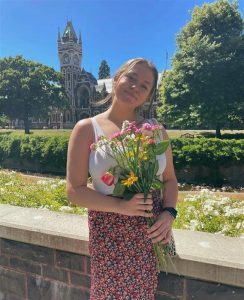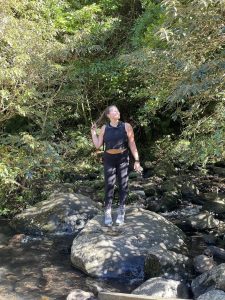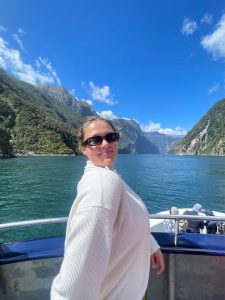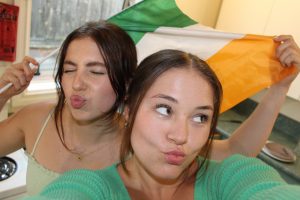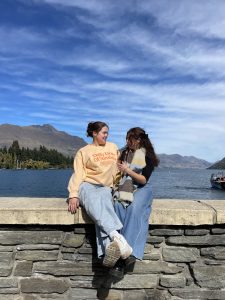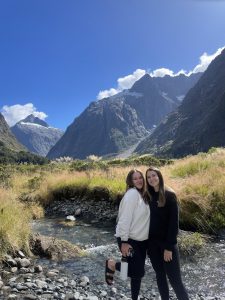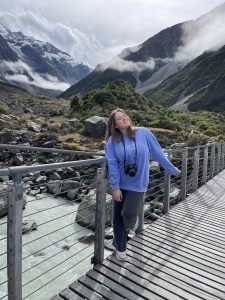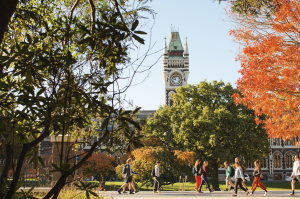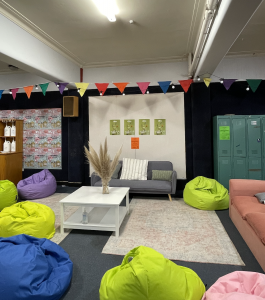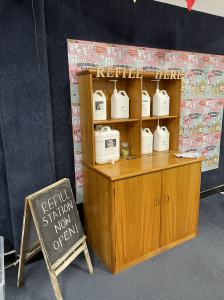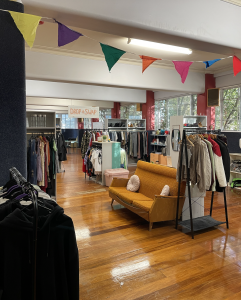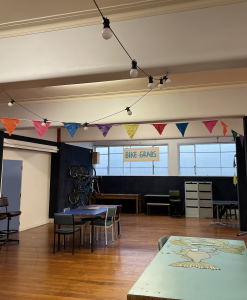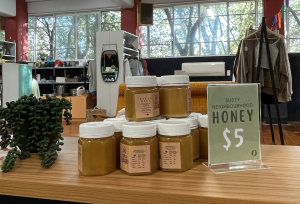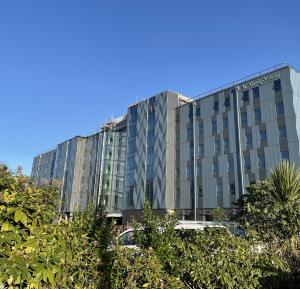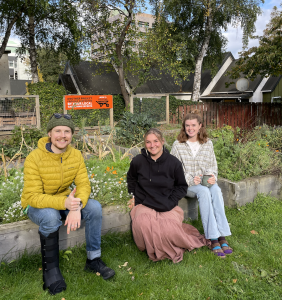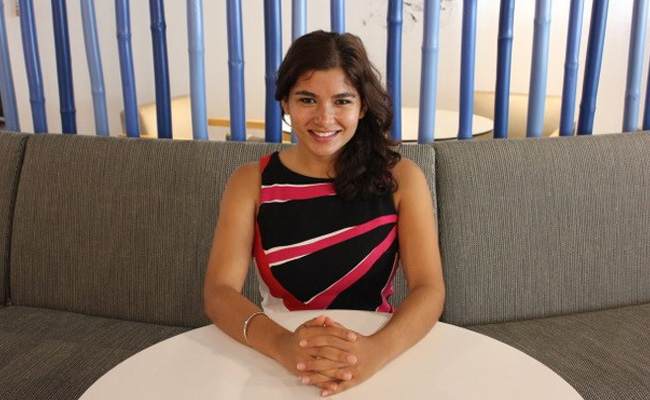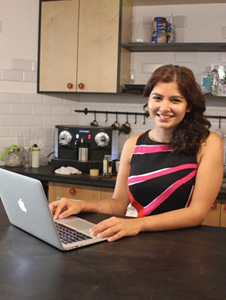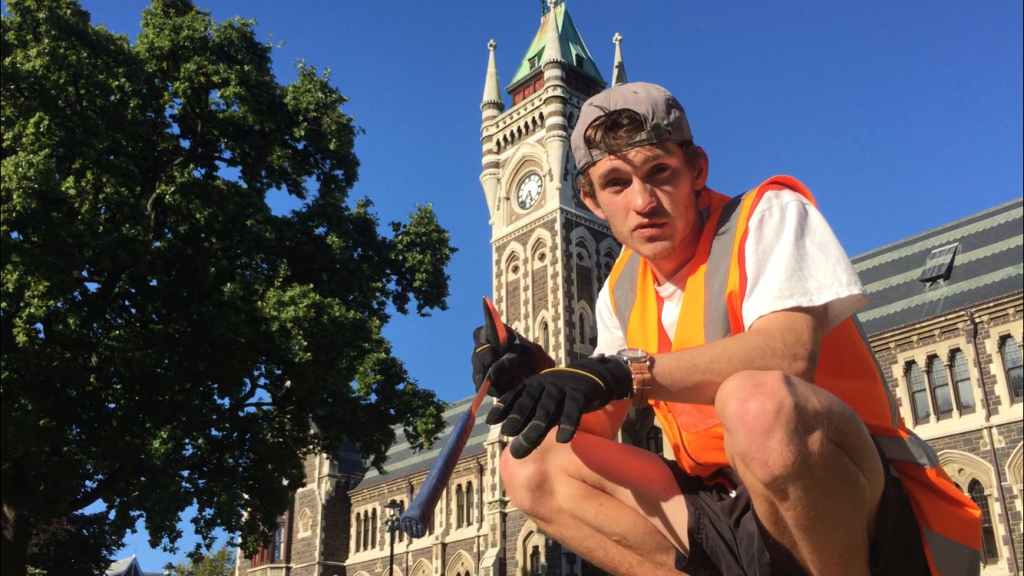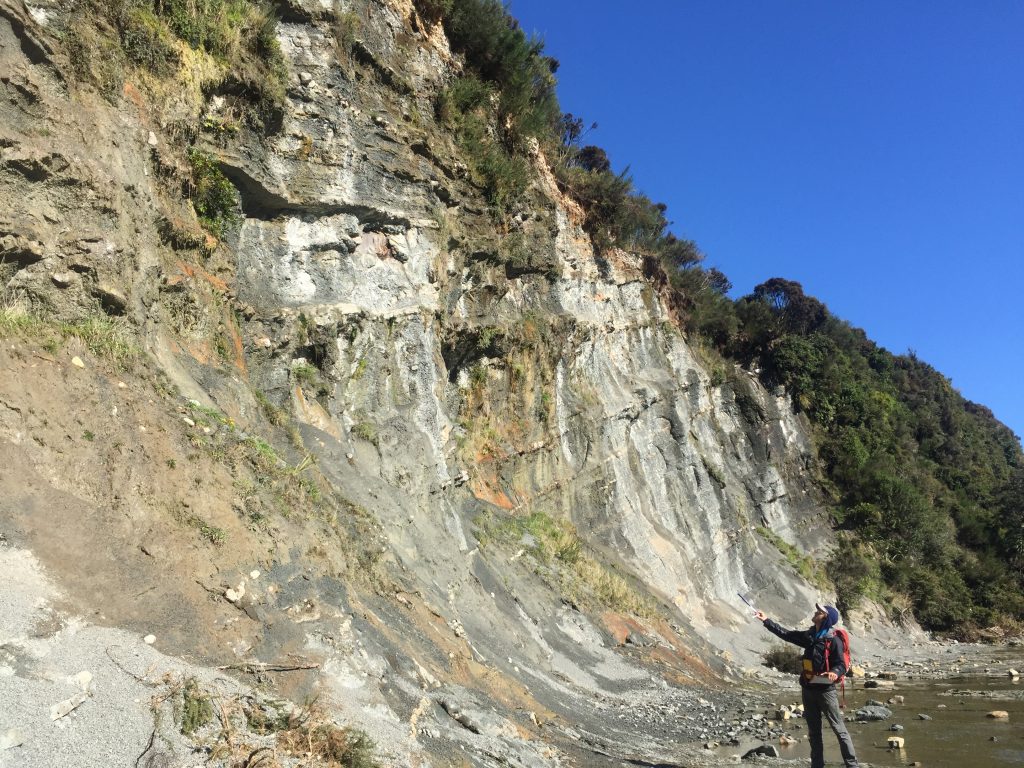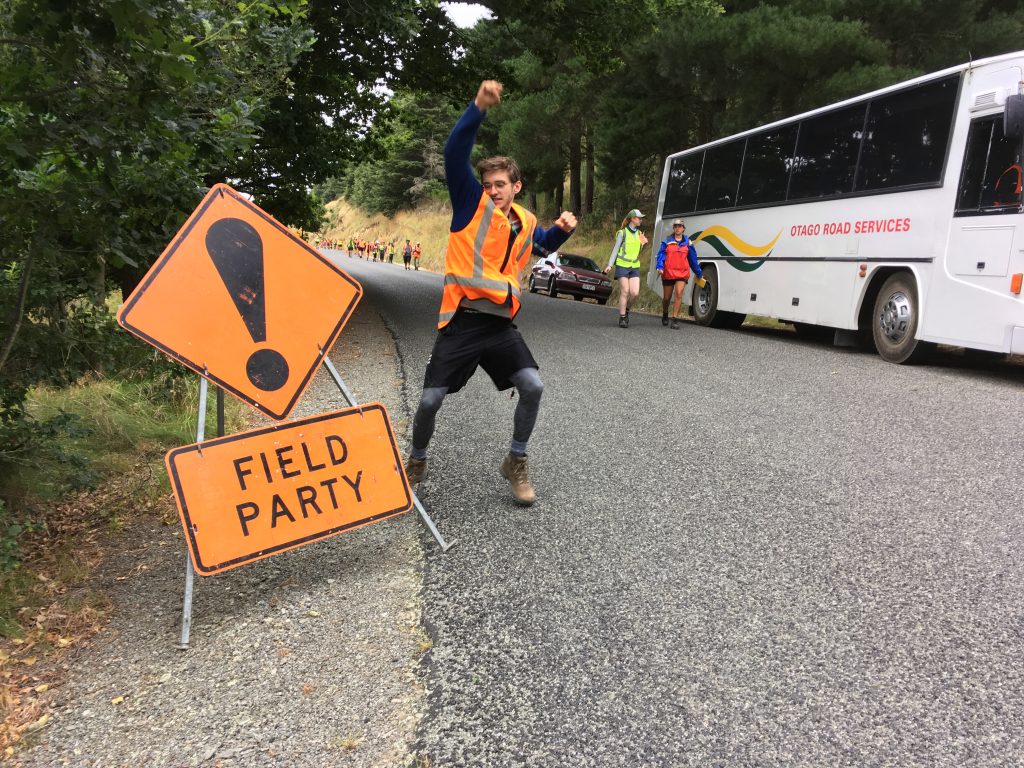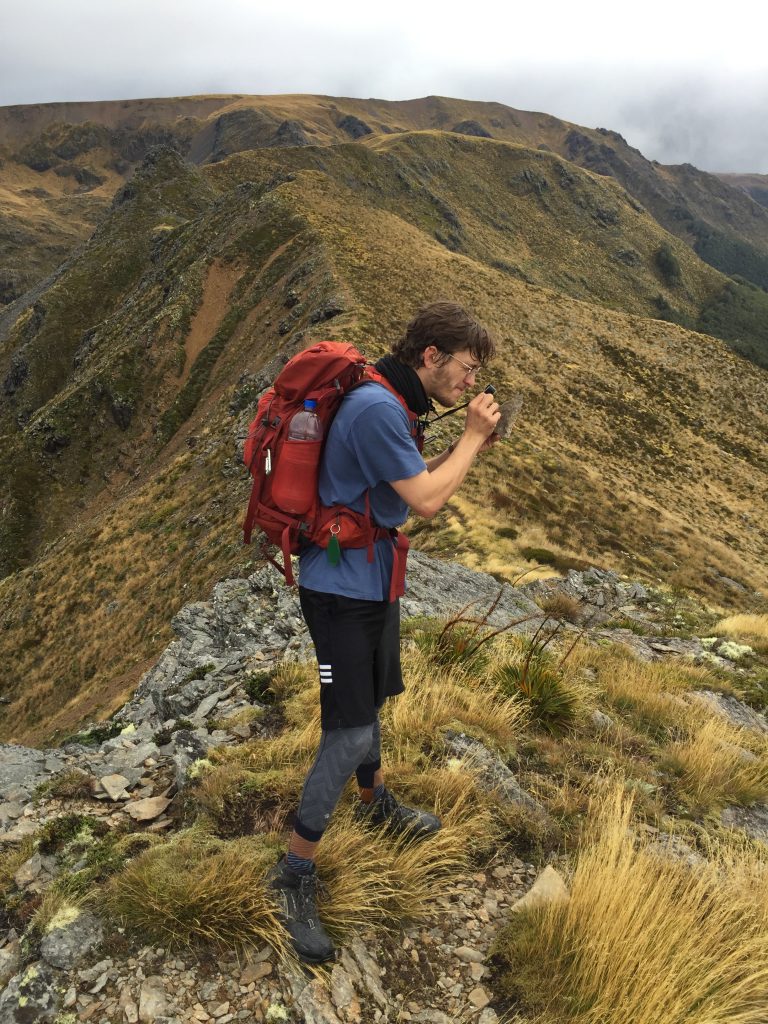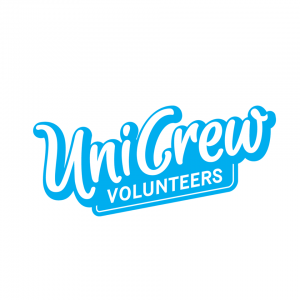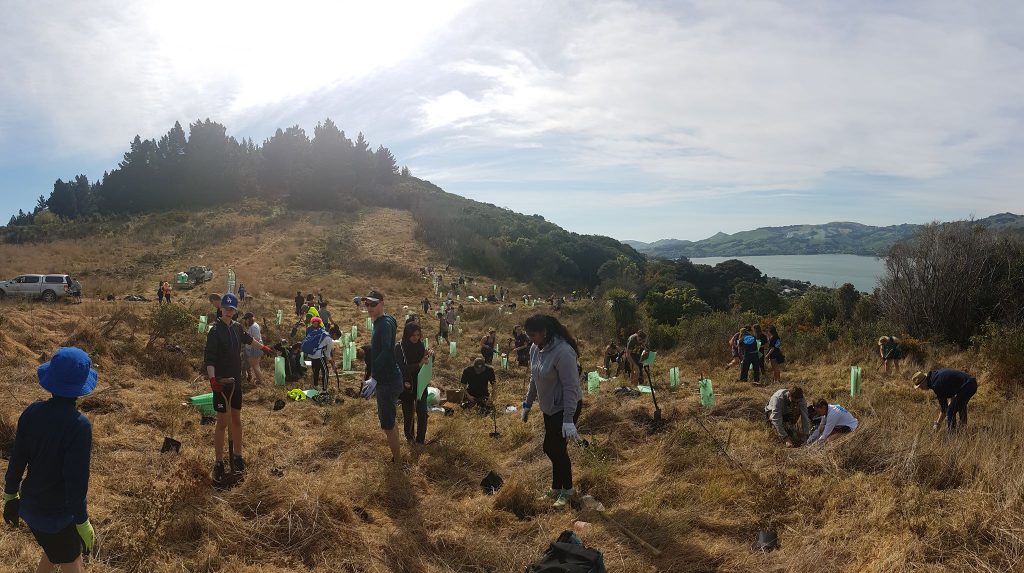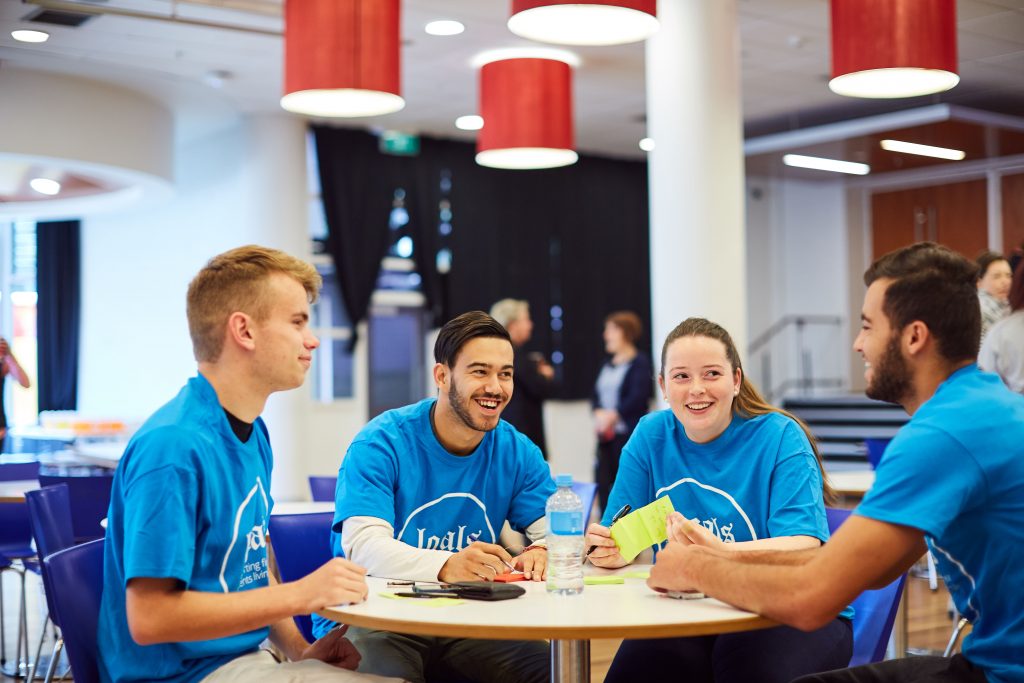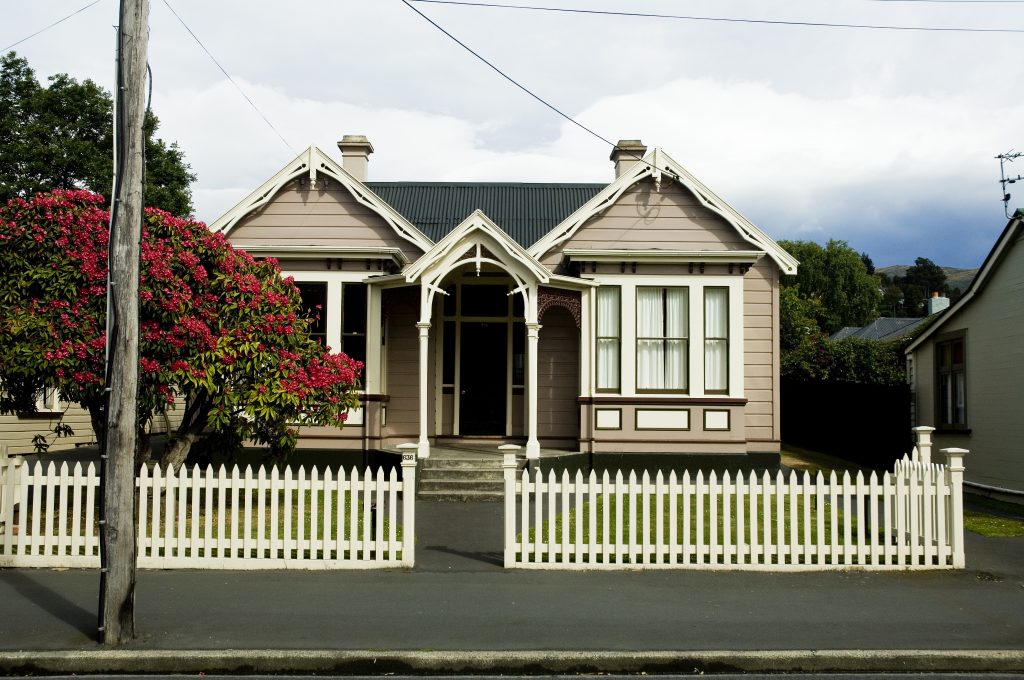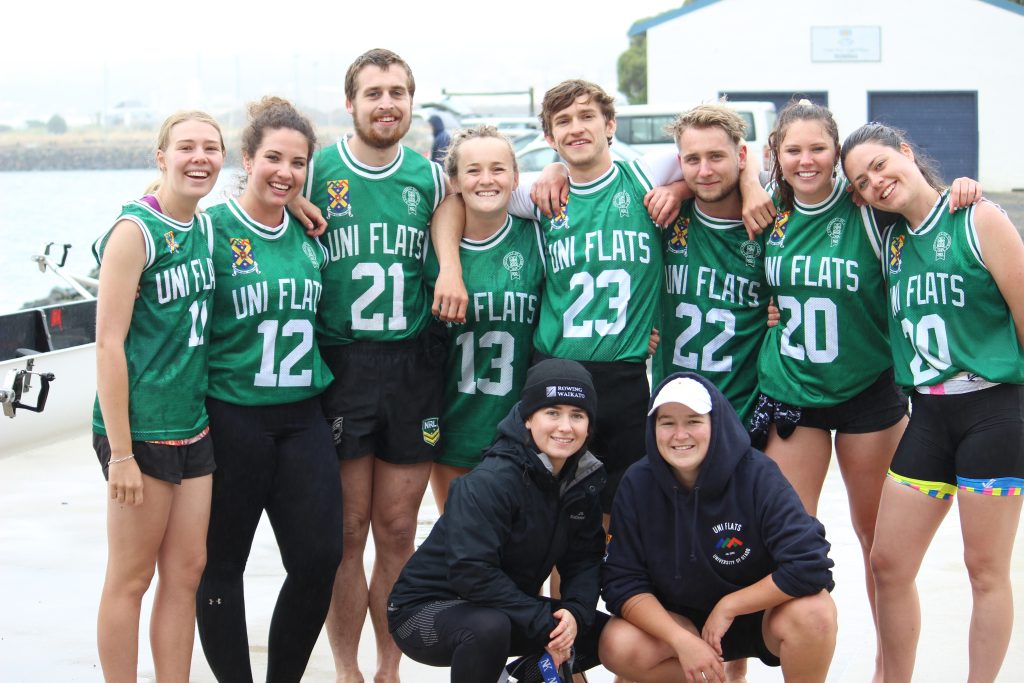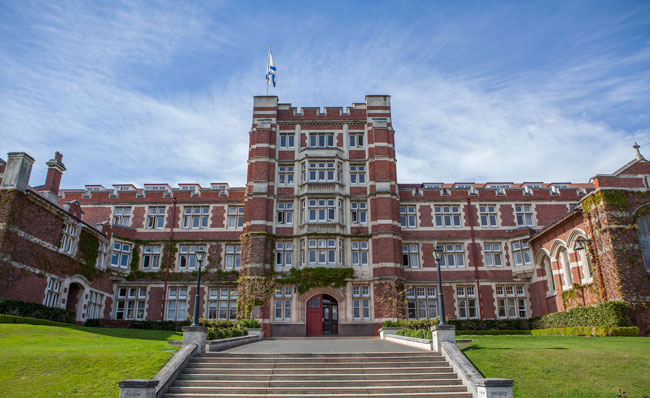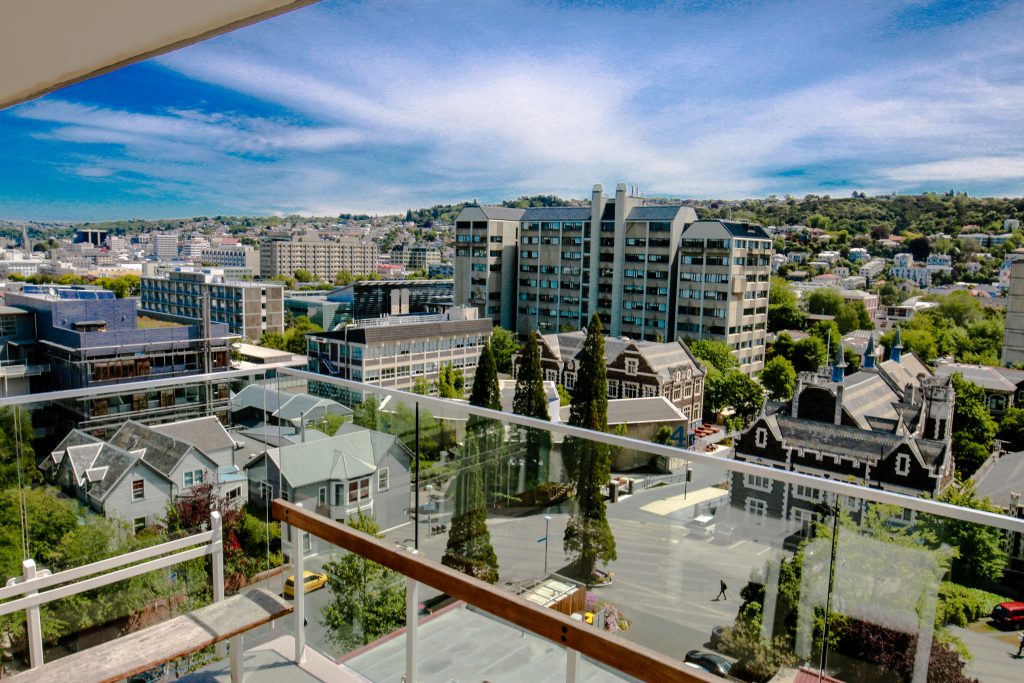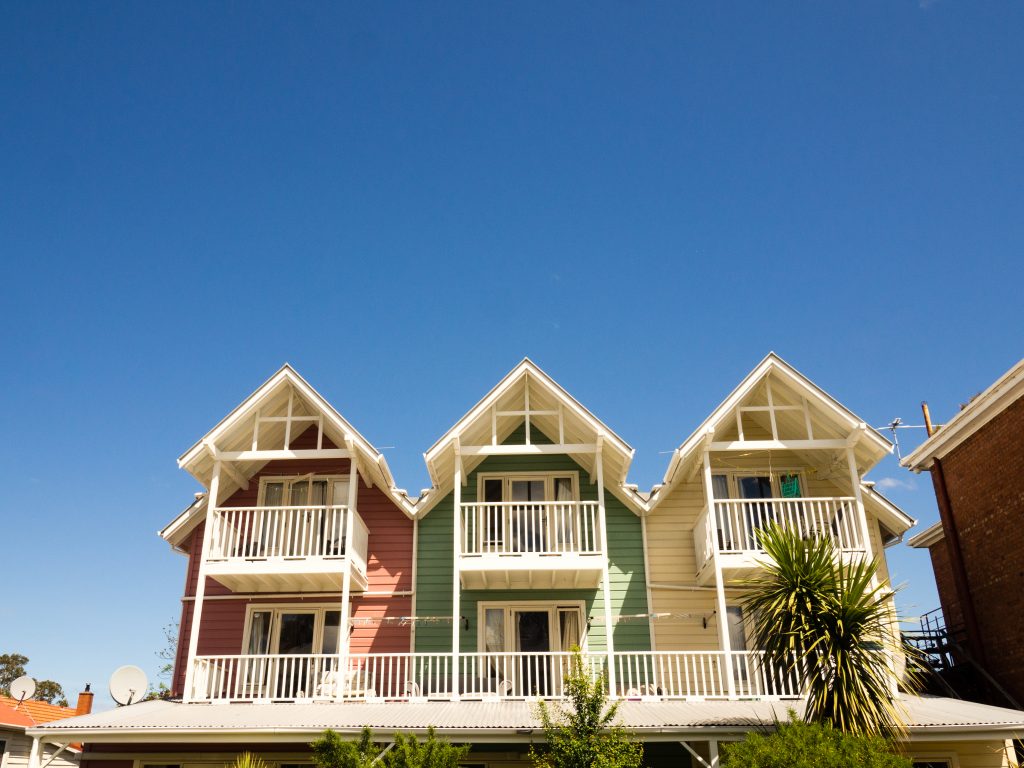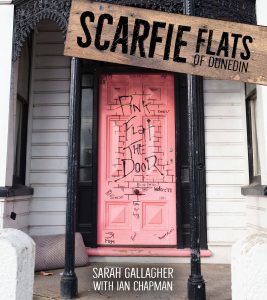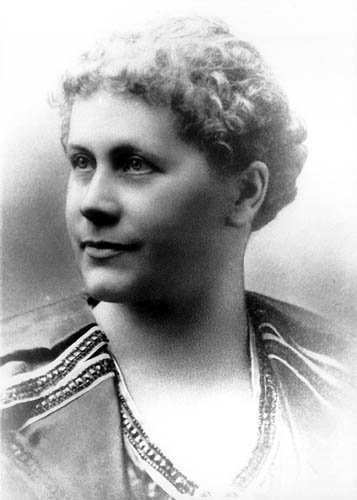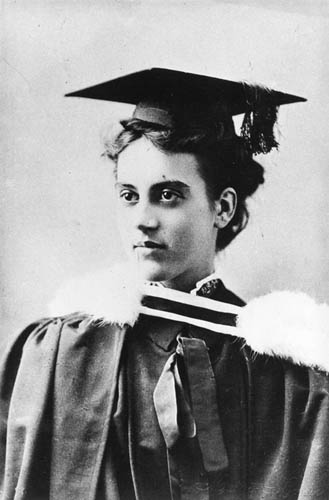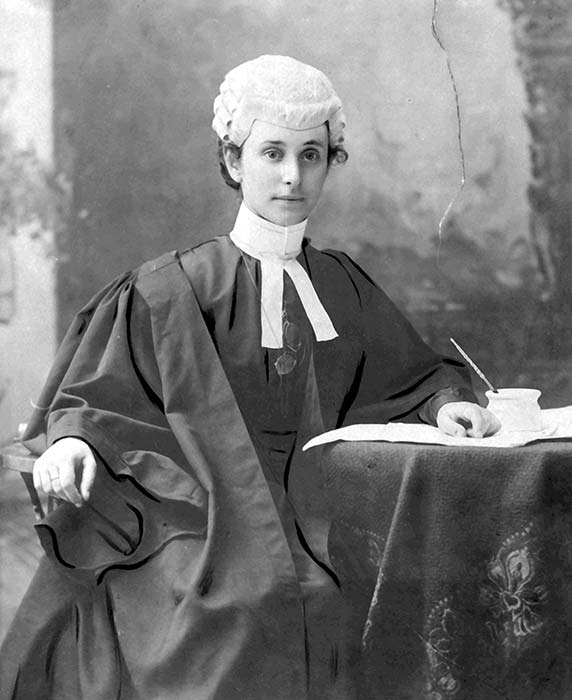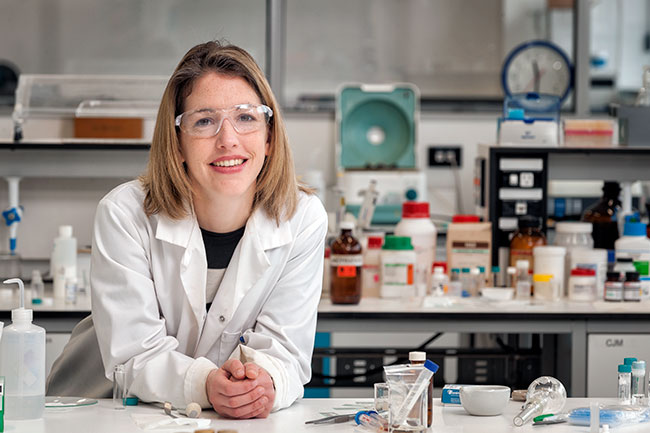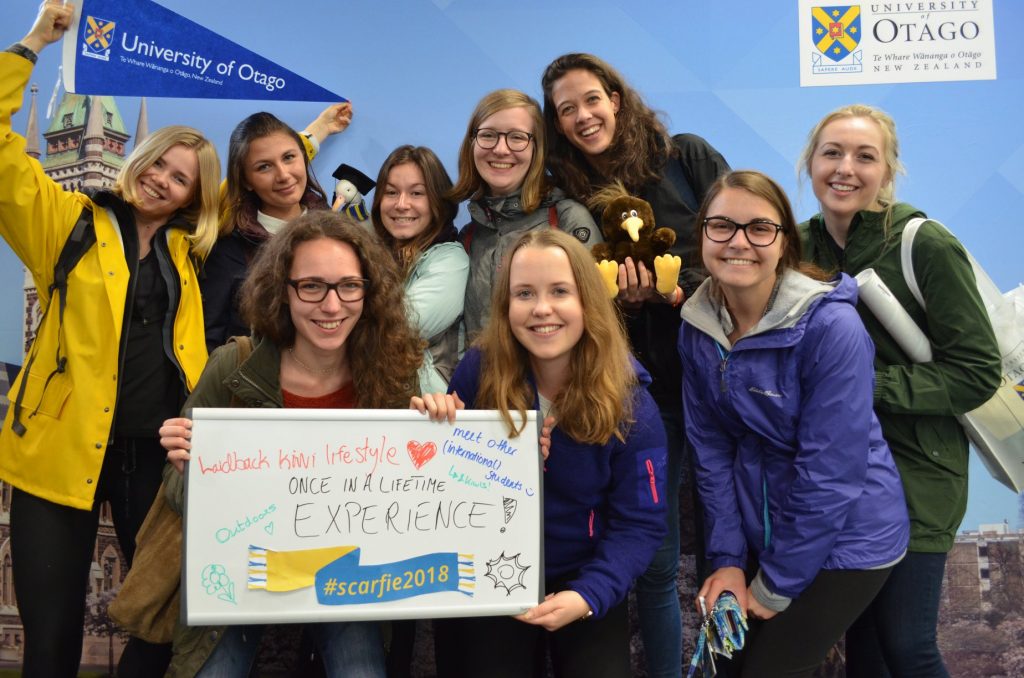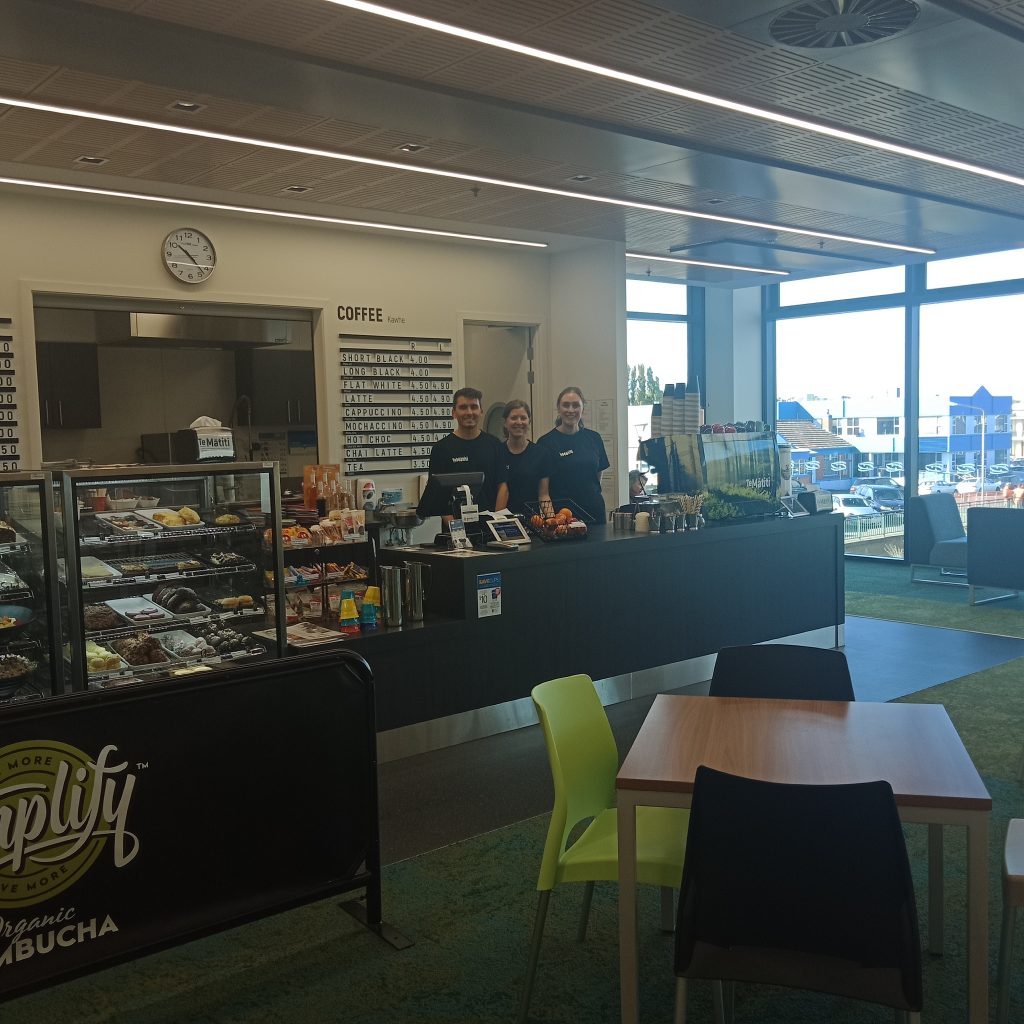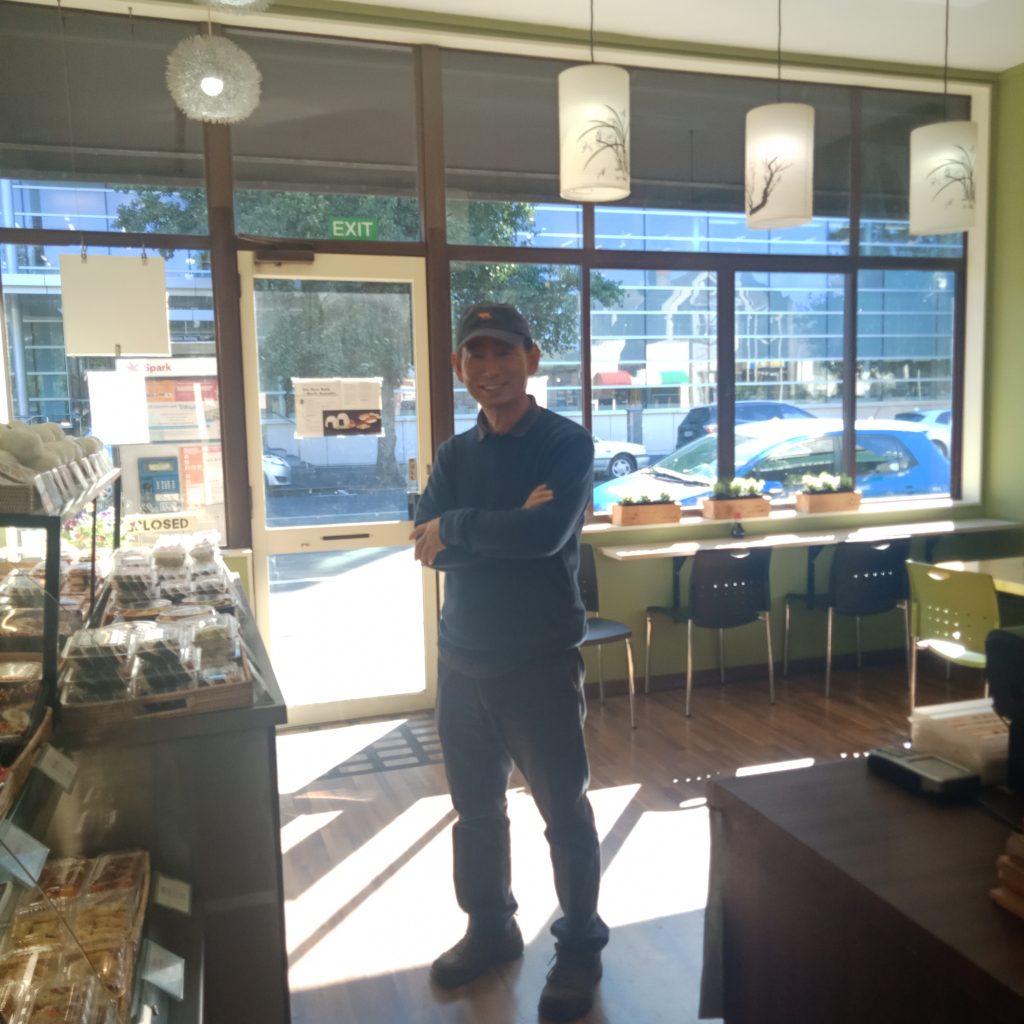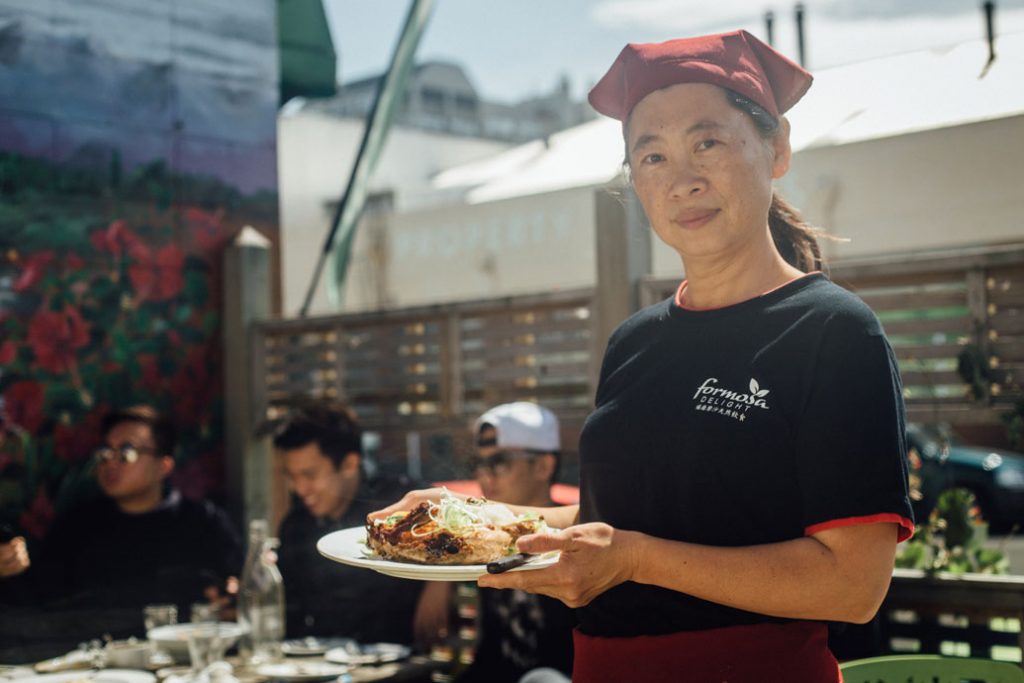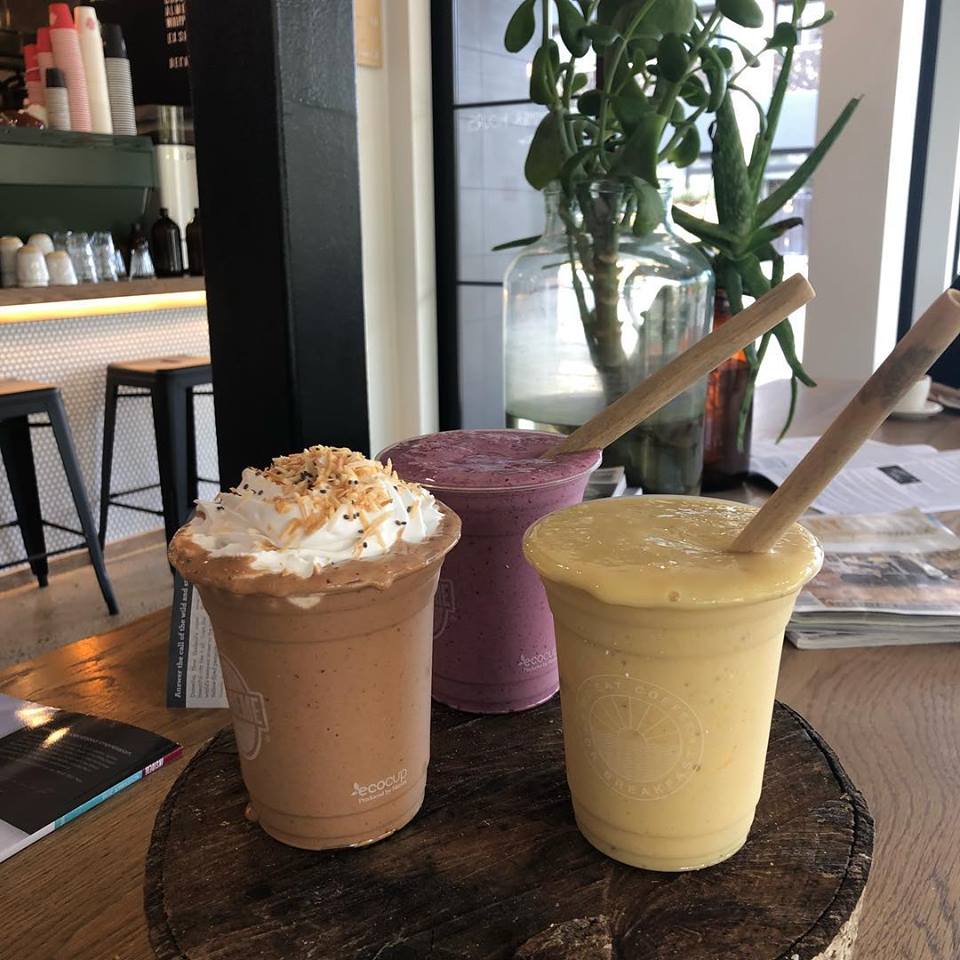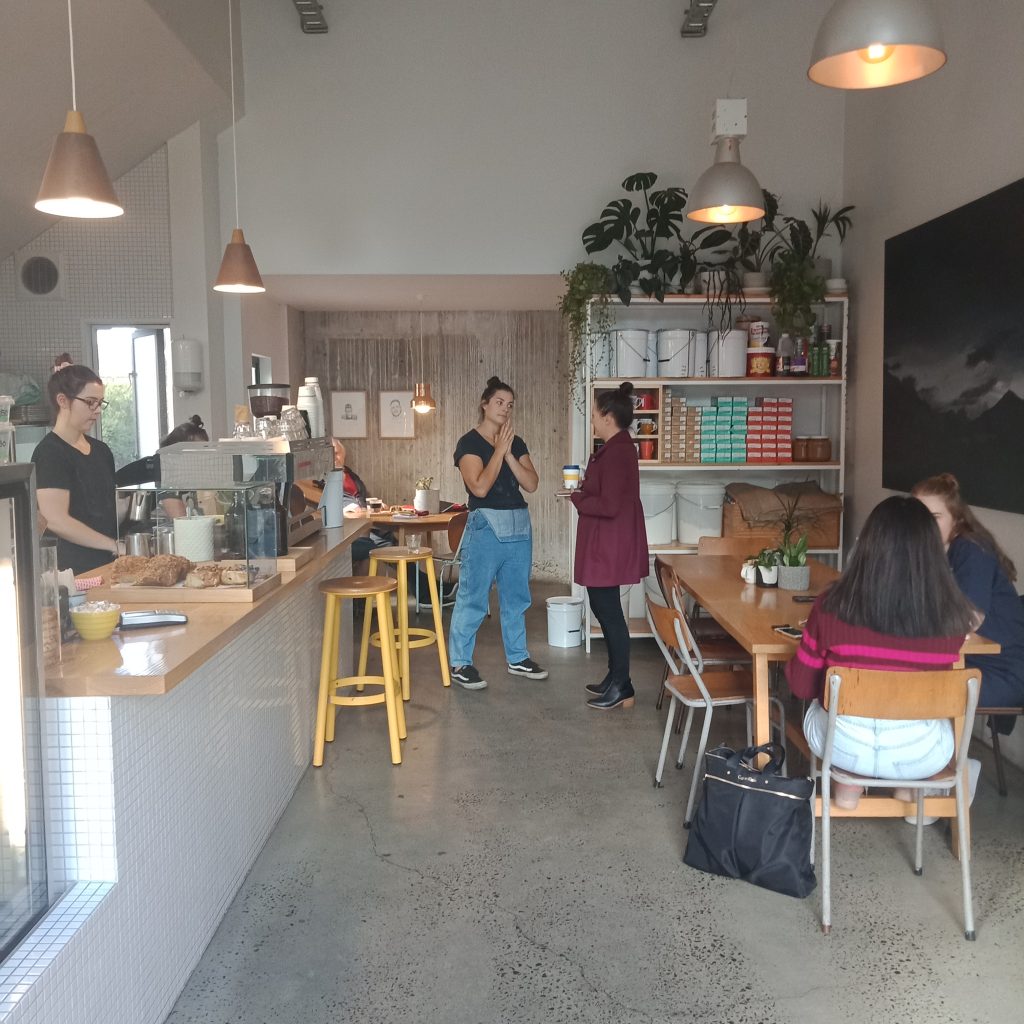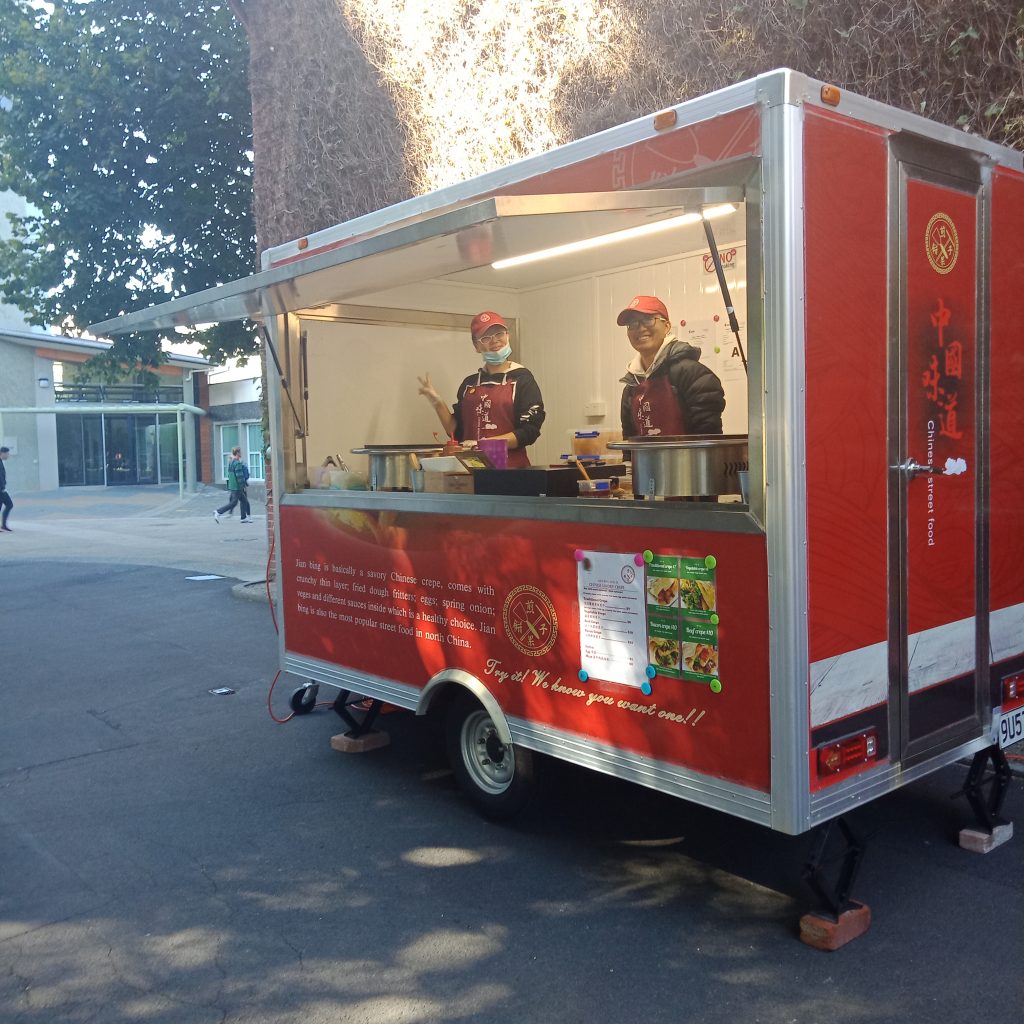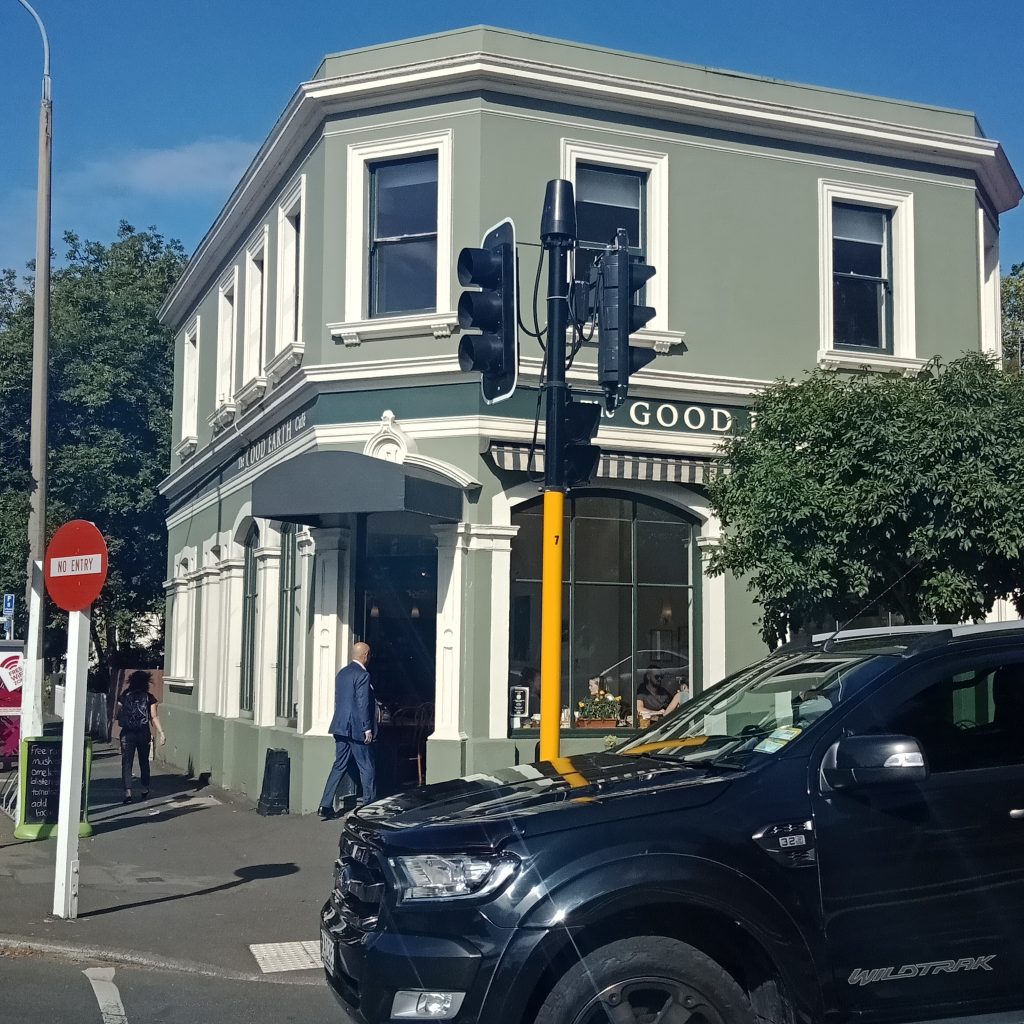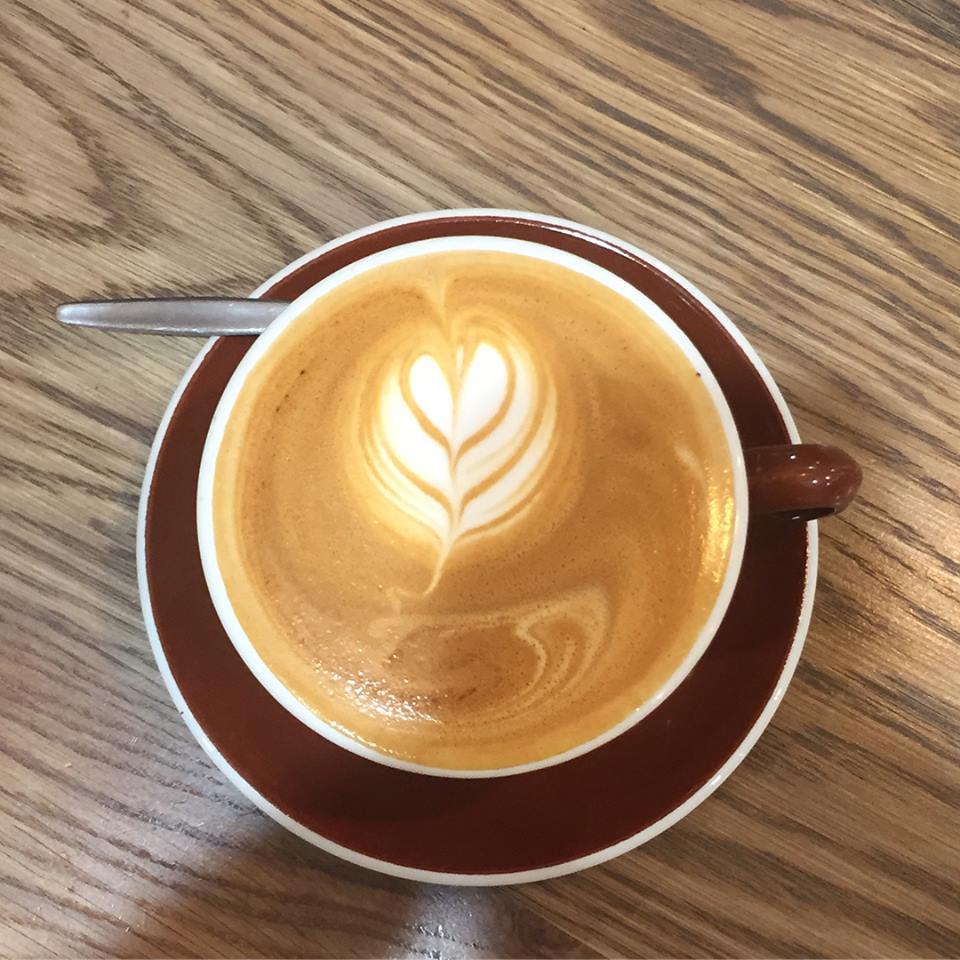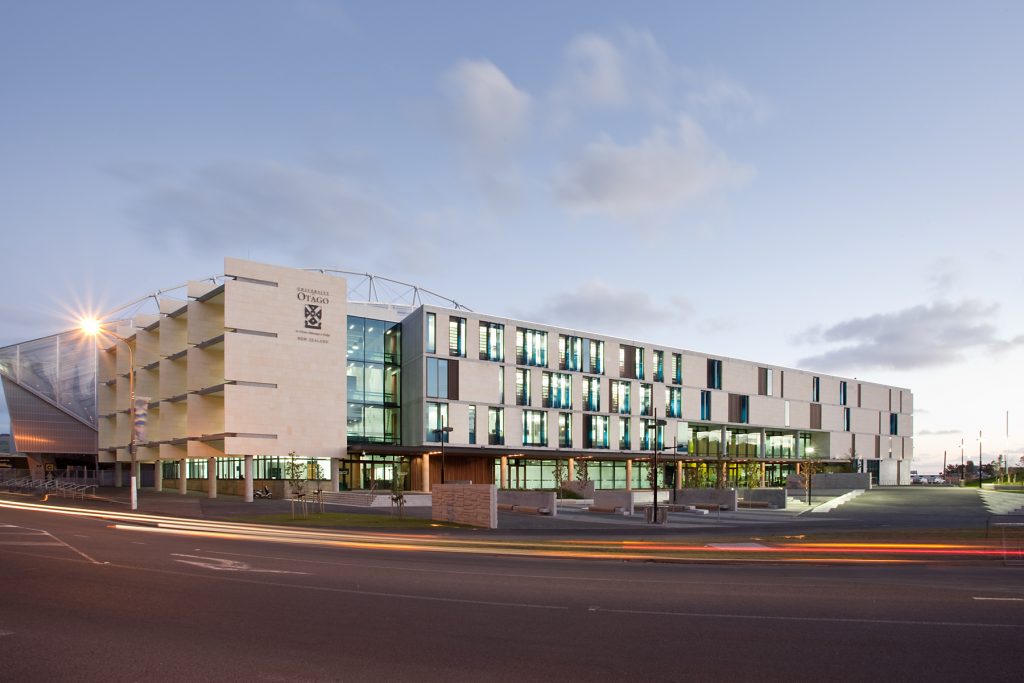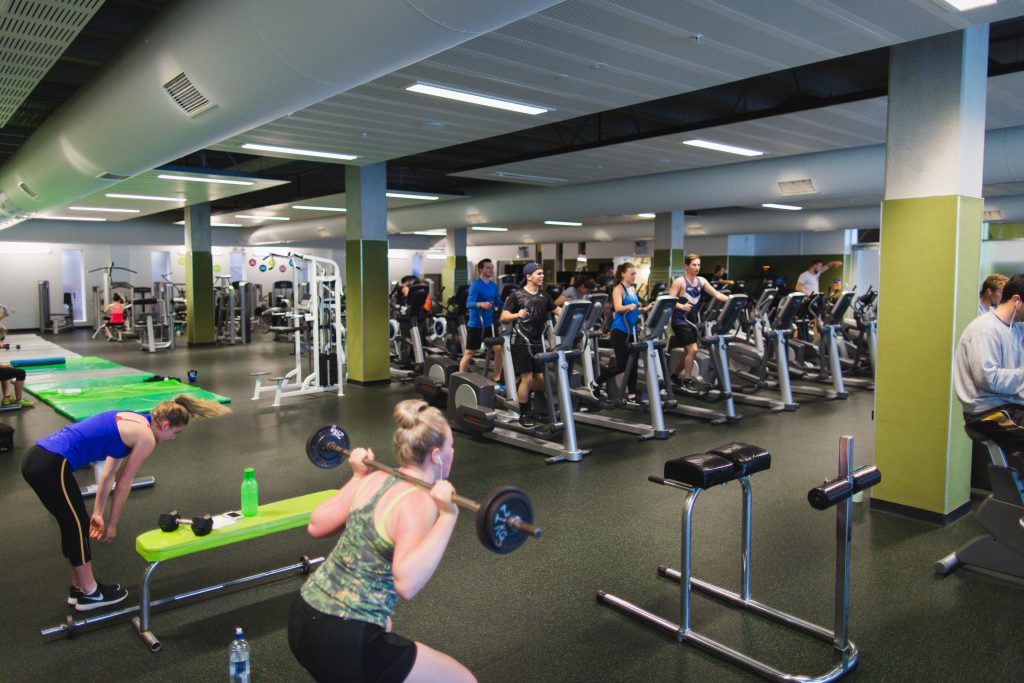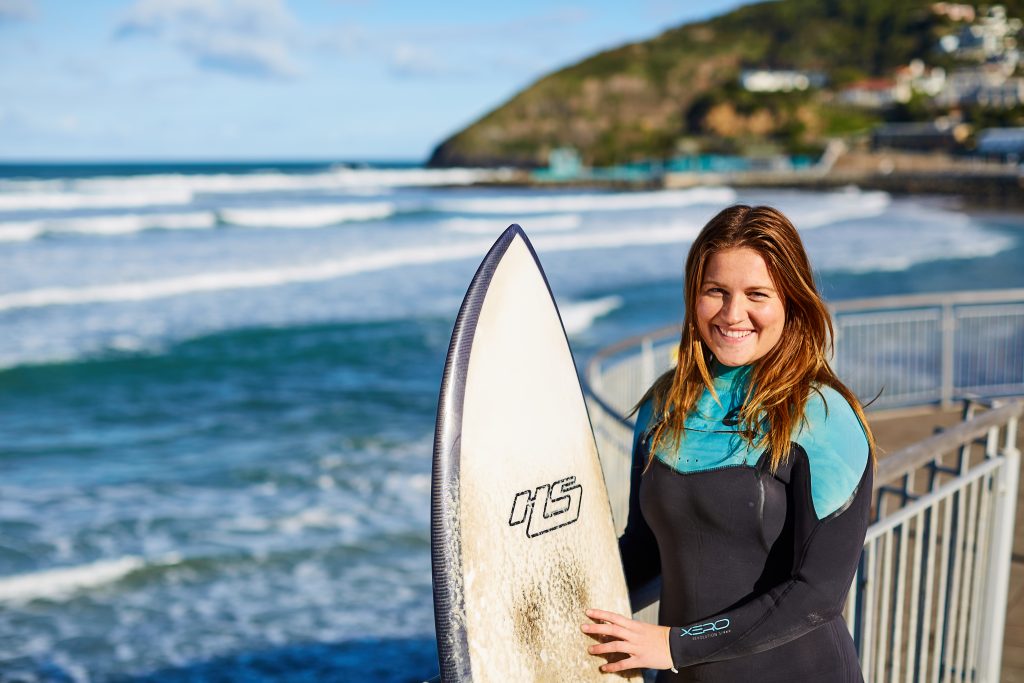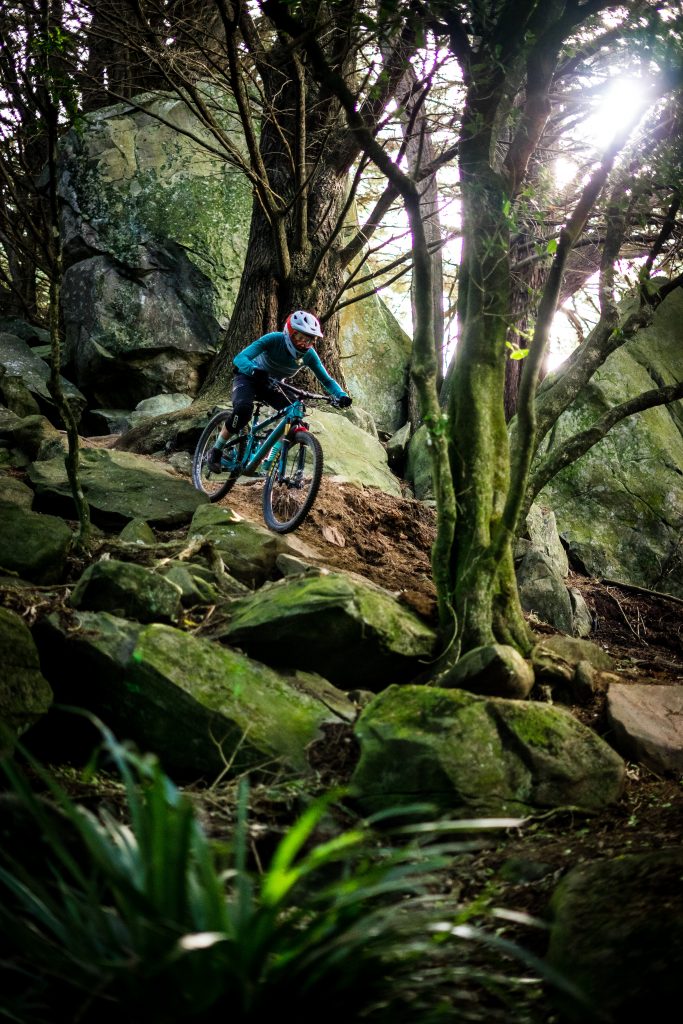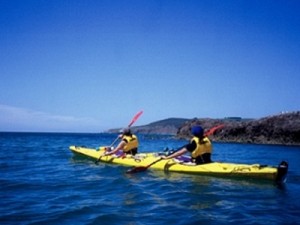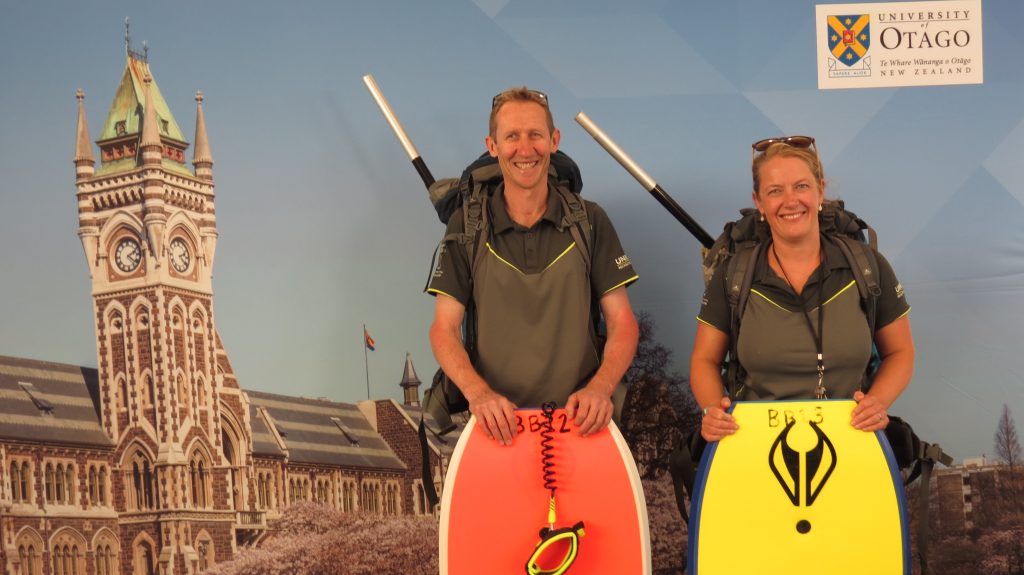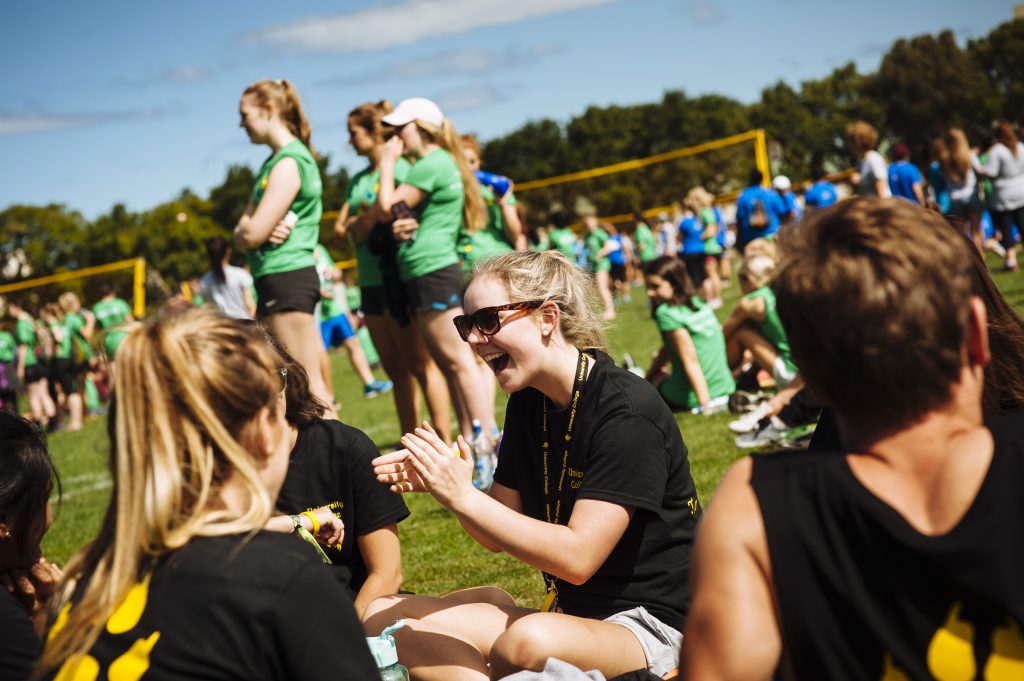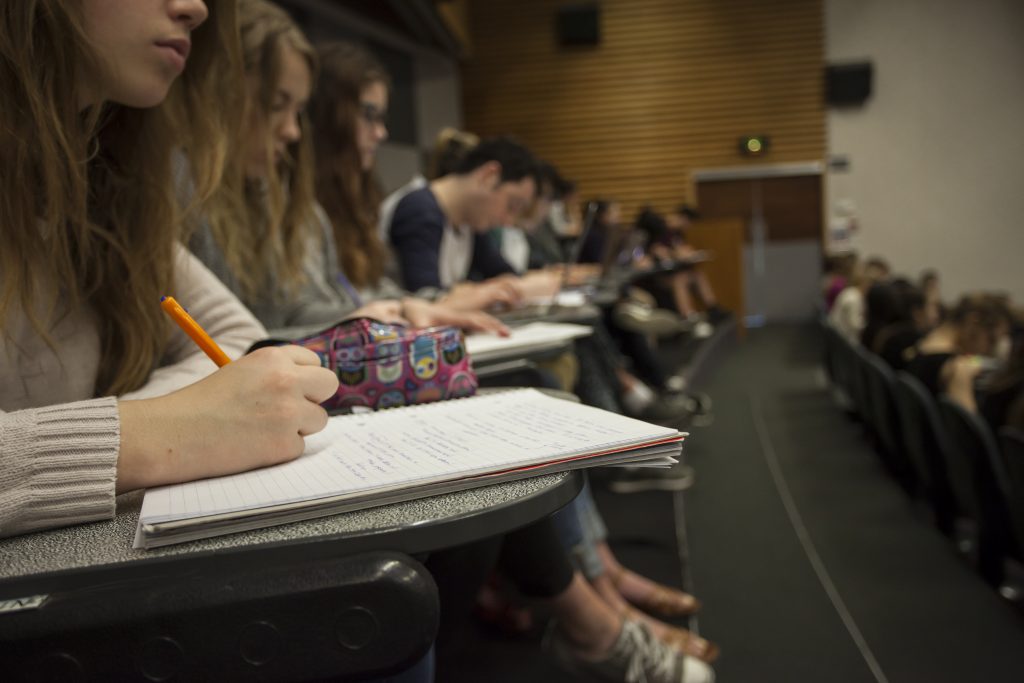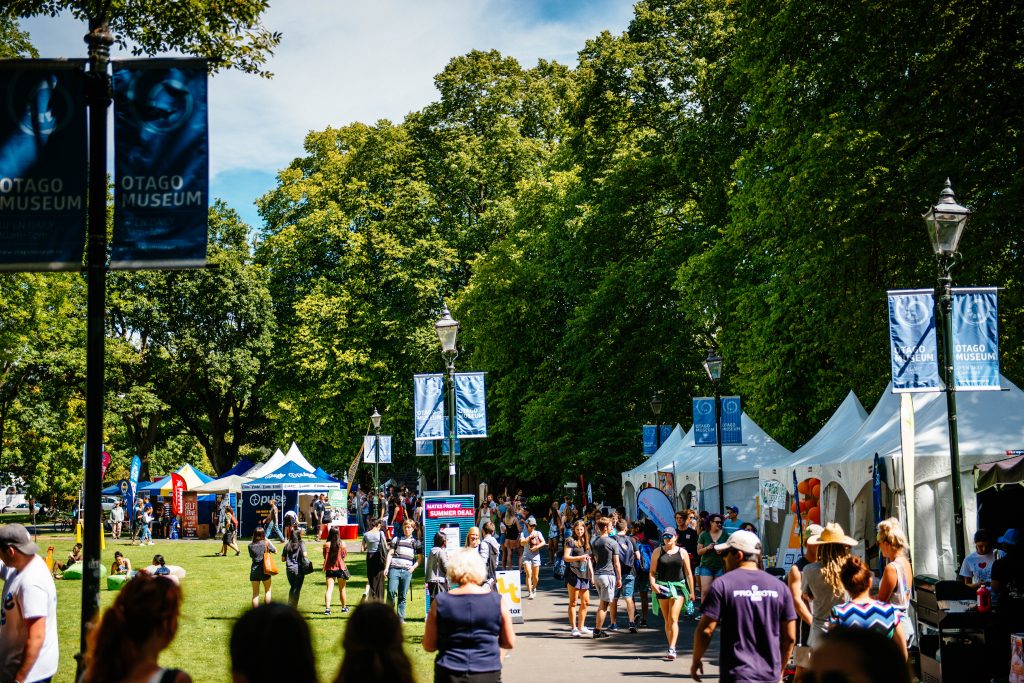Transitioning from Study Abroad to Full Degree: Neve Oettinger’s ‘Miracle’ Discovery at the University of Otago
Before her arrival at the University of Otago, Study Abroad student Neve Oettinger never imagined she wouldn’t be returning to her home in Minnesota, USA, at the end of her semester in New Zealand. In fact, Neve hadn’t initially planned on attending Otago at all, having already applied and paid application fees for another New Zealand university. Yet, in what she describes as a ‘miracle,’ Neve discovered Otago for the first time when by chance, she decided to look at other options, having only seen her prior choice when previously searching her major.
“One day I randomly looked at my university’s study abroad page and typed in New Zealand, then Otago came up and I looked at the pictures of the surrounding area, did more research, and found they offered my papers. So I cancelled my other application and applied to Otago! It’s like a miracle now because it’s perfect.”
Today, as semester one comes to a close, Neve sits before us as a full degree University of Otago student and will remain here next year to graduate. So we sat down with Neve to reflect on her self-labelled ‘bold choices’ and to hear how her Otago experience has been beautifully shaped by community, friendship, support, nature and connection.
Neve, it is wonderful to have you here! What are you currently studying?
“Sociology and I’m majoring in Criminology.”
What inspired you to choose New Zealand as your country of study?
“A lot of people from the United States go to Europe, and I knew I wanted a unique experience, somewhere with a lot of nature. New Zealand has a lot of nature and is a lot smaller than the United States which is exactly what I wanted.”
Have you felt a sense of community since you’ve been here? Have you fit in easily?
“Yes, it’s actually crazy. First of all [Otago] is a lot smaller than my home university which I really like because at home I always felt lost in the crowd, I didn’t know my professors’ names and they didn’t know mine- we had like 800 people in a lecture. So it’s nice here, it almost feels like the size of high-school classes which is nice because I actually have relationships with my lecturers and other students!
I always see familiar faces, I might not know their name, but I see the same people around, which is so different, because you would never see the same person twice where I am from.
Before I came here I was researching Otago on social media and a Kiwi girl called Ruby popped up and she felt like my vibe so I reached out. We have talked ever since then and now it has been over a year since and when I arrived we met right away- now she’s like my best friend and I am living with her next year. It’s something I felt I really missed back home [people that I clicked with closely].”
Why did you choose the University of Otago? What about our University stood out to you specifically?
“Otago is perfect. I love that it is so close to nature, and that is something that I don’t think other places have to the same extent. It’s just crazy, there are so many things to do in the South Island even that I have already done and it’s all relatively close- especially coming from the United States.
It surprised me how much everyone loves international students here, as soon as they hear me they want to know where I am from, what my life has been like…it is so cool.”
As a Study Abroad student, when you came here, did you feel adequately supported?
“I definitely think so. Teri (Regional Market Manager) was my first form of contact, if I ever needed anything I could ask her. I came here a month early and I travelled so I didn’t plan that much, all of my course plans for classes have a section for International Support, and I haven’t needed to reach out so I guess that’s a good sign! Living in UniFlats as well, my Kiwi host Claire answers all of my questions.”
How has your experience been living in a UniFlat so far?
“I love it. It’s awesome. I got really lucky with my friends, I live in a house with four girls including me, the others are from Ireland, Columbia and the UK. It’s been great. UniFlat’s and the UniFlat Facebook group is basically how I met all of my friends here.
On the Facebook page, everyone will post about themselves before they come and I even met another girl from Minnesota and we hang out here. At least fifteen friends I’ve made through the Facebook page, it’s not been hard, of course you have to make some effort but that goes for everything!”
“I have the most amazing location. It’s nice because UniFlats is spread throughout [the student area] so you’re mixed with other students- it’s really nice. Even my Kiwi friend Ruby lives six houses down from me by chance!
It is so awesome getting to live by people who are all in the same situation as you, which is something I didn’t have at home- it could be very dangerous for girls to live alone in houses.”
Have you felt safe here?
“Weirdly safe, so safe. It is so weird being able to walk alone in the dark and not feel scared, which is not quite the case where I am from.”
What inspired you to transition to becoming a full degree University of Otago student?
“I knew when I came here and met all my friends, instantly I knew that this is where I was meant to be.
It was a little stressful trying to make the decision but I thought if I am happy here I should follow that, I feel so at home, I knew I was happier here.”
What have been your favourite experiences at Otago so far?
“Meeting all new people. I love meeting new people, I have friends from Hungary, Ireland, the UK, Columbia, Sweden, all these different places. It’s cool learning about their cultures- it has just been awesome. It is nice having everyone in the same situation, everyone is looking for friends, everyone wants the most out of their experience.
People are very welcoming and inclusive, including my friends from New Zealand (…) they love to take me out and show me new things.”
A huge drawcard for international students here is the accessibility of study and travel. Have you taken advantage of this?
“Before school started I was here for a month, but I didn’t do much travel. We went to St Clair beach a tonne while I was settling in, we went to the Peninsula and did the Penguin experience, it was so fun.
Over mid-sem break myself and my flatmate took a road trip, we rented a car from the airport and we just figured it out. We went to Mount Cook, which is beautiful, I love Mount Cook. Then from there to Lake Tekapo, Kaikōura, Nelson, Akaroa and then back to Dunedin (…) it was so great. I think my favourite was Mount Cook and I can’t wait to go back to Lake Tekapo in the summer. We went sunset Kayaking in Nelson and we saw so many seals, they swam right by us!
I’ve been to Queenstown twice (…) we took the bus which is really nice, the bus will take you so many places here, like Queenstown and back which is so easy, way easier than renting a car, it’s so awesome. We did a lake hike and there is a bead shop [in Queenstown] where we all made bracelets and earrings, it helped us all get to know each other and it was so wholesome.”
What are the stand-out highlights of the University of Otago?
“The community, the nature, friendships, connection with my lecturers and the international support. Honestly, the accessibility to travel is so nice (…) it is so easy because everyone does it, people text all the time in the UniFlat page with extra spots in their cars for road trips.
This summer I am going to Mount Manganui, then for my 21st we are visiting Wellington and I have plans to go to Christchurch next semester. There’s a lot to do!”
What would you say to future students considering a Study Abroad experience at the University of Otago?
“Definitely do it. I’ve had so many people reaching out to me on Instagram wanting to come here! It is such a hidden gem. When people think of New Zealand they think of Auckland or the North Island, but the South Island just has so many things to see. I think it’s awesome, it’s a great sense of community.”
You’re a Kiwi girl at heart it seems…
“Exactly yeah, I am meant to be here!”
Do you have a taste for adventure? Ready to try something new? Study Abroad at the University of Otago and like Neve, experience a world-class education while travelling the country. Have an authentic “Kiwi” student experience living amongst the locals in our University-owned UniFlats, and receive excellent support from our International Support Team.
Start your adventure today!
Check out our Study Abroad options here.
Sustainability in Action at New Zealand’s First University
Through the reuse of materials and products, from honey to bicycles, a circular economy has been successfully established within the walls of Otago University’s Dunedin Campus.
It only takes a short walk through the University of Otago campus (we like to call it ‘the Sustainability Walk’) to see the success that is possible when sustainability is at the forefront of collective action.
The current limiting of waste, regeneration of materials and other initiatives in operation pave the path for a more sustainable future, demonstrating the possibilities and positive impact of a circular economy in action!
Te Oraka: Thrift, Swap, Refill and Grab!
Te Oraka, the University of Otago’s on campus thrift store, was first sustainable initiative visited – and when we say this place is impressive, we really mean it! Located on 96 Anzac Avenue, Te Oraka is a hidden gem for Otago’s student population, with a purpose for greater sustainability on campus.
Te Oraka is a community driven, positive space – there’s an area decorated with bean bags, comfy chairs and a projector, which hosts student community film screenings. There’s a refill station equipped with dishwashing, laundry liquid and body wash, aiming to diminish waste and support students.
There’s a ‘Drop & Swap,’ where you can shop for new clothes or household items and pay or exchange with your second-hand items. Lastly, there’s the ‘Bike Grab’, which collects second-hand bikes for student use to encourage different modes of travel around campus.
The shop further hosts ‘repair café’ workshops, teaching students how to repair clothing, among other sustainably minded practices, aimed at giving items a second life. Te Oraka further has household items, such as kitchenware and furniture, all with an aim to ease the consumption that accompanies a new flatting year, minimising waste and encouraging second-hand purchasing.
Te Oraka even sells their own honey! Produced by bees within the Sustainability Neighbourhood and residential colleges Aquinas, Arana, Toroa and Carrington, the honey is processed and collected by a local apiarist, Otto. The honey is then bought back at cost and sold to the university community, supplied back to the neighbourhood and college kitchens, sustaining a circular economy within the University.
“When the students are putting honey on their toast in the morning, it was collected by the bees in the garden of the college where they live… it’s trying to create more of a sense of place, a sense of belonging.” – Ray O’Brien, Head of Sustainability
Winners of the student engagement category at the 2022 Australasian Green Gown Awards (which includes entry to the global awards), Te Oraka’s practices represent the circular economy possible from recycling, re-using and re-investing funds into sustainable practices and products. Te Oraka further functions as a ‘living lab’, meaning their sustainable practices showcase what could be introduced on a larger scale within the University.
“One of the core ways that we are going to make a difference is by engaging more and more students, because every student we engage with, often lives a long productive life of leading change as they go… which is why things like Te Oraka and the Sustainability Neighbourhood are so core to what we do.” – Ray O’Brien, Head of Sustainability
Te Oraka is absolutely worth a visit and is the perfect place to collect a variety of flatting goods, clothing and furniture, all while incorporating sustainable practices into your daily life. Purchased flatting goods can be later returned, thus contributing to the circular flow of sustainability, and reducing waste.
Open: Tuesdays and Thursdays between 11am and 1pm, operated by the Sustainability office.
Te Rangihīroa Residential College (Open for applications for 2024)
Our second stop was Te Rangihīroa, a large and visually impressive residential college with sustainable aims. The college is named after Te Rangihīroa, the first Māori medical graduate from a New Zealand University. Te Rangihīroa is remembered as a leader and a doctor who dedicated his life to servicing the Māori community, and the heath issues that impacted this community in the early twentieth century. The college has been designed with input from Te Rangihīroa’s Ngāti Mutunga iwi and local Ngāi Tahu.
When completed, Te Rangihīroa will qualify as a 5-Star Greenstar building, which is deemed New Zealand excellence and is built with sustainable practice and purpose. Green Star certification functions to holistically analyse building performance and environmental impact.
Te Rangihīroa will have 150 ensuite bedrooms, and house 450 University of Otago residents. It features a spacious dining room, music and media rooms, study spaces and social spaces. Applications for the college (located on 15 Forth Street) open on 1 August 2023.
Iwi
Noun New Zealand
A Māori community or people.
Ngāti Mutunga
One of eight generally recognised iwi of Taranaki.
Ngāi Tahu
The principal Māori iwi of the South Island
The Carpark Living Lab
Otago University’s dedication to the incorporation of sustainability ventures within the institution itself, looking at issues such as carparking, the space these take up, and how we can an encourage alternative modes of travel, reducing community emissions.
The Albany Street Staff Carpark is an example of smaller sustainable changes that could be incorporated on a larger scale within the University community. The carpark will feature an electric bike charging station and a park-swapping system.
Albany Street is currently under a project of reconstruction with a bike lane and larger bus stops being installed.
“Students wise, we’ve got about 80% of our undergrads within a few kilometres of campus (…) senior students start to move further away, but even with staff we have around 80% living within five kilometres of campus.
We have some challenging terrain and sometimes some challenging weather as well so this living lab is about figuring out how can we make that shift to more sustainable practices (…) how we can unlock people from being car commuters…” – Ray O’Brien, Head of Sustainability
A carparking system through a phone application that allows carpark users to rent out their spots, is the tool to supporting more sustainable modes of travel, believes O’Brien, allowing car users flexibility. There will further be an electric scooter rack, while the overall carpark will function as a living lab, heavily incorporating student learning.
The carpark is located on 99 Albany Street.
The Sustainability Neighbourhood
The final stop of our walk was the Sustainability Neighbourhood, which offers the Otago flatting experience with an added focus on sustainability. The Sustainability Neighbourhood is comprised of a group of flats set up to encourage and establish environmentally conscious living practices, set up to allow residents to grow food, compost, recycle, be energy efficient, and lead active healthy lives.
Within the Sustainability Neighbourhood, residents are inspired to live their values through creating monthly huis, so far having a waste management expert visiting and teaching the residents about recycling and minimising waste, alongside advice on gardening.
The Neighbourhood currently houses many international students, which is highly beneficial says Demi Lawrence, the Student Lead of the Sustainability Office, with students from all walks of life offering knowledge and advise on a common sustainable cause. The Neighbourhood has a bike rack, vegetable garden, greenhouse, composting station, beehives, a worm farm, and high-quality University-owned flats.
Students can engage in a range of activities, including growing and eating their own food.
If you’re dedicated to sustainable living practices, willing to contribute and looking for a like-minded community, the Sustainability Neighbourhood is for you. The Neighbourhood is a space of embodying values through action and sets out to make a larger difference as a ‘living lab,’ which is believed to have a widespread impact on the student flatting scene.
Hui
Noun
(in New Zealand) a large social or ceremonial gathering.
The ‘Sustainability Walk’ is a truly inspiring example of what is possible at the University of Otago, in an environment that fosters learning, growth and community. The shared values of sustainability across campus at several levels, alongside the successful circular economy, showcase the university’s commitment to sustainable practices, and hold with them the promise of a greener future.
The University of Otago is ranked 63rd in the global Times Higher Education (THE) Impact Rankings 2023. The rankings measure universities internationally to evaluate their performances against the United Nations’ Sustainable Development Goals (SDGS).
Interested in sustainability at Otago?
Incorporate climate change perspectives into your degree!
Subjects and courses available for international students
Check out the Sustainability Office!
Inspiration for women who want to be the boss.
E-learning company GoSkills’ co-founder Bhavneet Chahal says her experiences at the University of Otago kick-started a career helping others learn about IT and realise their potential.
Bhavneet completed a Bachelor of Applied Science with first-class honours, majoring in molecular biology in 2006. She later gained a Master of Entrepreneurship.
While working for Groupon in Sydney, Bhavneet realised that online courses were a growth area but that they were not always providing the quality content required by professionals looking to expand their skills.
Since being founded in New Zealand in 2013 – with input from Otago Professor Paul Hansen – more than 104,000 users have signed up to access GoSkills’ 50+ online learning courses.
Bhavneet backs up her advice for young women wanting to start their own business with practical assistance; she proudly supports two $2,000 scholarships each year. The title of these awards leaves little room for misinterpretation: they are called the Scholarship for Women Who Want to be the Boss.
 How did Otago help to shape your life and career success?
How did Otago help to shape your life and career success?
I studied Applied Science as an undergraduate and, while I always enjoyed science, I couldn’t see myself pursuing a career as a researcher or scientist.
During the last year of that degree I found a student business competition on campus called Kickstart. I entered the competition with a business idea and I was a winner in the first round and a finalist in the competition’s second round.
This opened up my eyes to a totally different world of business and entrepreneurship. I then completed a Master of Entrepreneurship to learn practical skills to start and grow a business.
This degree was right up my alley, I learned the fundamentals of business and felt prepared to one day start my own company.
 Highlights and interesting memories of your university days?
Highlights and interesting memories of your university days?
Definitely the residential colleges; when I first arrived at Otago I stayed at St Margaret’s College. I later worked as a Residential Assistant (RA) at Cumberland College, which was known at the time as being a bit of a party Hall. It was then that I realised what being an undergraduate at Otago was truly like! I was glad I started off at a relatively tame place and could ease into uni life. Some of my best friends today are people I met at both St Margaret’s and Cumberland!
 Recollections of favourite or standout lecturers?
Recollections of favourite or standout lecturers?
I had two standout lecturers. The first was Richard Higham – he was about 79 when I took his class during the Master of Entrepreneurship. I was inspired by his sharp intellect, boundless energy and superior Excel spreadsheet skills! He was able to bring our class together and teach us how to grow a business in a fun and dynamic environment.
The other standout lecture is Professor Paul Hansen – an economics lecturer and part-time surfer. I was drawn to Paul’s energy and passion for his craft – economics and business. It’s no wonder he’s won student popularity awards and it’s also no coincidence that he’s now my business partner at GoSkills.
 What are your career or personal highlights?
What are your career or personal highlights?
Starting a company from scratch, pulling together people and resources and growing it into a global business. Our team can work from anywhere in the world and we sell to customers the world over. Building a business that pushes the boundaries of being in a global and connected world has been extremely fulfilling.
 What are your future goals?
What are your future goals?
Keep building businesses, help others build and grow businesses, and world peace – naturally!
 What advice do you have for current students or students considering studying at Otago?
What advice do you have for current students or students considering studying at Otago?
Make the most of every opportunity. There are so many facets to university life – try them all. Join random clubs, try sports you might not have ever considered, enjoy the unexpected friendships you will form along the way. It’s only when you try loads of different things that you discover what you truly like and figure out who you are. University is a time to try things in a safe environment and set yourself up for a future that most aligns to who you are and where you want to be.
Many thanks to the team at the University of Otago Alumni & Friends for providing the content for this blog!
Nicky Richardson is an International Marketing Coordinator at the University of Otago. With degrees in music and marketing, both from Otago, she is passionate about education, and the places it can take you.
Study Abroad at Otago – if you love what you do, you can do it here.
Fox Meyer came to the University of Otago from Washington DC, originally for one semester, but one semester proved not long enough, and he extended his stay for a year. We caught up with Fox, as he is a bit of an international student super-star, and asked him why he came to Otago? What he experienced when he was here – the good and the bad, and the combination of factors that make the University of Otago, in Dunedin, New Zealand, located at the very bottom of the world, such a special place.
“Plenty of schools have good geology programmes, and plenty of schools are in wonderful locations, I chose Otago, because it has both.”
The style of learning was different to what Meyer was used to back home, more independent and ultimately down to personal motivation. If you’re passionate, the academics will do everything they can to help you.
“Academically, the kiwi attitude towards failure was very healthy. Professors won’t hesitate to fail you if you aren’t making the grade, but that’s not the end of the world. They don’t sugar-coat anything. You’re there to learn, and you need to be wrong in order to learn. I’m glad the staff felt the same way.”
The majority of geology coursework involved fieldwork, plenty of time in tents and streams, resulting in a final product as opposed to an exam, which was perfect for Meyer’s learning style.
“Otago has encouraged me to do any sort of project I could conceive of, and point me in the right direction when I’ve needed help.”
This independence and interest for his subject led to assisting a professor looking at the thermal properties of the Otago harbour. The data obtained from this is useful in tracking climate change, as well as prospecting potential geothermal taps. On a whim, Meyer applied for the inaugural ‘Think New Grant,’ from Education New Zealand, and won it!
“I think that part of the reason I won was because I had so much fun applying; enthusiasm for one’s study can often be contagious, so big ups to Otago for fostering that curiosity.”
When asked what a stand out feature of studying at Otago was, Meyer refers to the social lifestyle at Otago as an international student:
“Living in the international community is a wonderful bubble. There’s something going on every night of the week, you’ll meet folks from all over the world, and if you don’t know how to cook, now’s the time to learn!”
And once again, the learning and teaching environment are top of mind:
“I was given a lot of creative freedom and deadline flexibility to produce an end product that I was happy with. That being said, expectations are very high. You had to ask for help, you had to explore, and you really had to get your feet wet. That’s a good way of describing Otago: it’s very easy to get your feet wet, and if you’d like, you can dive a whole lot deeper.”
Best memory?
“I have a year of best memories. The most humbling was during field camp when I’d just submitted my first map sheet, and I thought I was really hot stuff. I felt really big for my boots, was very confident with my lab experience back in the States. Boy, was I mistaken. Way off! My map sheet made no sense at all and the lecturers tore it to shreds. I asked for advice, listened to their advice, went back out, and got a 98% on my next map. Otago taught me not to think I know too much. There’s always room for improvement.”
Worst experience?
“Leaving Otago. It’s that good. If you’re someone who likes their independence, who can work hard and play hard, there’s really nowhere else to go. Definitely not Auckland.”
Future plans?
“I’ll be back to New Zealand as soon as I can, I’d like to explore jobs in the geothermal sector. I really believe New Zealand has both the natural potential and the social support to become a geothermal powerhouse.”
Great to catch up with you Fox, congratulations on graduating with a Bachelor of Science (BSc) majoring in Geology, we wish you all the very best with your future endeavours.
Our favourite takeaway quote from chatting:
“If you love what you do, you can do it here.”
To find out more about studying at the University of Otago, click the big yellow button below and start your journey!
Nicky Richardson is an International Marketing Coordinator at the University of Otago. With degrees in music and marketing, both from Otago, she is passionate about education, and the places it can take you.
The increasingly popular trend of volunteer work at the University of Otago – what are the benefits?
I attended a career presentation last week, held by the University of Otago Career Development Centre that reported on the forecasts and trends in the international market when it came to AI (artificial intelligence) and robots and the impact that this technology would have on human careers. One thing was abundantly clear, robots and AI will never replace the unique blend of characteristics and empathy that make us human. Another notable mention was that the new intake of generation Z students at Otago, are very concerned about social responsibility, and motivated to making a difference to the world. This semester the number of students volunteering through UniCrew, the University of Otago’s flagship volunteer programme, has reached an all-time high, and it’s student volunteer week this week, so let’s find out a bit more about what volunteering can do for you, the wider community and your CV!
UniCrew
UniCrew began in 2014, the idea behind it being that students get matched up with local organisations through volunteering and social impact opportunities. This would then provide a way of connecting and engaging students with the wider community, building relationships around projects and subjects that matter and getting hands on experience outside of the university lecture theatres and classrooms . Since then UniCrew has over 200 organisations registered with them, and they offer a range of long term, short term or micro one-off events that students can be involved in, plus they connect “every volunteering opportunity and community organisation to the United Nation’s global goals in the mission to leave the world at a better place by 2030. By measuring ourselves against these goals, we are able to measure our impact in the global context, find areas of development in which we can improve on and champion sustainable development by educating every young person and organisation in UN’s Sustainable Development Goals.”
What kind of volunteer work can I do?
There are so many options, whether you like the idea of getting outside and planting out trees like the UniCrew volunteers pictured above, or collecting donations for Dunedin’s Wildlife Hospital or be involved with the Yellow Eyed Penguin Trust? Or perhaps if you enjoy being around children sign up for the Reading Oasis programme, or the Garden to Table programme which teaches how to grow, harvest, prepare and share food. Longer term, short term and one off options are available and it is the intrinsic benefits that you’ll feel that will probably be the most rewarding part of this kind of work.
Volunteer work on your CV
After attending the career presentation last week, and talking with University of Otago career advisors, it is clear that volunteering work is looked at very favourably from an employer perspective. In many respects, volunteer work may be seen and used as a form of internship. Let alone the fact that the connections that you make volunteering, around subjects and projects that interest you, may very well lead you straight into the path of a future employer. Showing you are interested, giving your unpaid time to something you care about is showing initiative, social responsibility and it’s also giving you hands on experience outside of study.
Made with love
UniCrew got the call from O-Red, the student group associated with the Otago Red Cross the day after the Christchurch mosque attacks to ask “students and staff to bake, and write letters of support and thanks to Muslim and migrant families in Dunedin, and to Christchurch police and hospital staff – and they were overwhelmed by the response.
Manager of Otago’s Volunteer Centre Sze-En Watts says more than two cubic metres of baking was dropped off at OUSA Clubs and Societies building on Albany Street between 1pm and 7pm on Wednesday, as well as many letters and cards.”
Student Volunteer Week
So, if you’re interested in volunteering, or you just want to find out more about the mutual benefits it presents, the Student Volunteer fair is running today from 11am – 2pm at UniCrew Volunteers, 65 Albany Street, Dunedin, or find out more on the UniCrew website – it’s a win, win for everyone if you just take the time to find out more.
Credit to the UniCrew website and the Otago Bulletin Board for the quoted information in this blog
Nicky Richardson is an International Marketing Coordinator at the University of Otago. With degrees in music and marketing, she is a recent graduate of Otago herself – she loves Otago so much she ended up getting a job here!
.
Accommodation at Otago – where will I stay?
So, you’re thinking of being brave, adventurous and independent and leaving your home country to come and study at the University of Otago? We love to see all the new and returning faces of our international students, and we also like to think that we can answer a few of the many questions you may have before you get on board that plane and take a leap of faith to come to our beautiful little corner of the world. So today’s blog focuses on where you will live when you come here, we’ve got a few options to offer accommodation wise – it all depends on what kind of living experience you are looking for, so here we go!
University Flats (Uni Flats)
Uni Flats is probably our most popular option for international students. Before I go any further I think a little translation of kiwi is necessary, a flat in New Zealand is actually accommodation, often a house like the one pictured above, which is shared with others. These flats are very close to campus so you will be right in the heart of student life. Each flatmate has their own bedroom with kitchen, bathroom, laundry and living areas as shared spaces. So you’re living pretty independently, but you’re not alone.
Any full time international student who is coming to Otago for one or two semesters can apply to live in a Uni Flat. Up to six international students live in a co-ed flat, accompanied by one or two kiwi hosts. A kiwi host is a New Zealand student, who will help you settle in to your new environment and this is one of the best ways to assimilate into a culture – by hanging out with the locals! These flats are extremely popular and are managed by the University, are autonomous but offer a supportive and pastoral care service, have plenty of recreational and social activities – so if you’re thinking of coming to Otago, make sure you apply as soon as possible.
Residential Colleges
If you like the idea of having your breakfast, lunch and dinner prepared for you (sounds good to me), and enjoy meeting and living with lots of people, perhaps one of our residential colleges is what you need? We have 15 residential colleges at Otago that accommodate 3,500 students and plans are afoot to build more! There are so many different options, if you like the idea of a traditional, historic and architecturally impressive college, look no further than the castle like Knox College (pictured above) or Selwyn College.
Or if you want to be right in the heart of campus St Margaret’s College is one to note, or take a look at the view from Unicol (University College) in the photo above – Unicol is our largest and possibly liveliest college. We also understand that post-graduate students may also like the care provided by a college, but aren’t quite as interested in the social aspect so we have a designated post-graduate college – Abbey College.
Private, Short Term or Temporary Accommodation
If for whatever reason you’re not interested in flatting, or living in a college, or you’re just wanting to find private accommodation, or accommodation for a short time or you have any queries our international accommodation adviser from the University of Otago Accommodation Centre can offer advice – international.accommodation@otago.ac.nz.
Dunedin flats in general require a particular mention here, recently Sarah Gallagher, of the Dunedin Flat Names Project, and Dr Ian Chapman, Senior Lecturer in Performing Arts at the University of Otago, have collaborated together to create a visually appealing and witty book entitled ‘Scarfie Flats of Dunedin’ featuring a selection of well known and lesser known named flats – yes, students have named their flats.
And remember If past domestic and international student’s testimonials are anything to go by, the time you spend at Otago, outside of classes and laboratories will no doubt lead you to new experiences, opportunities, friendships and memories that will stay with you for your lifetime. Many alumni lament and say……oh, those were the days……take me back to Otago……!
Nicky Richardson is an International Marketing Coordinator at the University of Otago. With degrees in music and marketing, she is a recent graduate of Otago herself – she loves Otago so much she ended up getting a job here!
International Women’s Day – a look at the past, present and future of women at Otago.
International Women’s Day, the mere idea of this notion would have been considered ridiculous 150 years ago during the early days of Otago University. I think it is important on a day like today for everybody – men and women, to remember the women that came before. The women that literally paved the way for the women of today, and opened up doors that had been closed shut and bolted to women for time immortal. Today’s blog focuses on just a couple of these remarkable women (there are so many to mention), from the past, the present and is a reminder for the future that whilst we are still not yet on an equal playing field, much has been done and the collective attitudes of men and women including perceptions and behaviour can make a difference to future generations.
Caroline Freeman
You just cannot go past a discussion on International Women’s Day at the University of Otago without mentioning Caroline Freeman. In 1878 Caroline Freeman became the first matriculated woman to enrol at the University of Otago. At this time she lived in Green Island, which in those days required her to walk 11 kilometres after lectures in a long dress, through muddy wet tracks. Her health suffered as a result and she was forced to find accommodation in Dunedin. Her academic environment also proved to be hostile with Professor of Classics G.S. Sale, known to be a ‘veritable ogre’ to female students. A staff member once commented that had Freeman been a fighting man, rather an a studious woman, she would have been merited for her ‘pluck and perserverance.’ Caroline Freeman graduated in 1885, to a large applause with flowers thrown across the stage, and by the time of her capping 11 more women were enrolled at the university at different levels. Recognition of her courage, perserverance and passion for education was highlighted when the University of Otago named one of their residential colleges after her – Caroline Freeman College.
Emily Siedeberg
Next up on our list of those who paved the way is Emily Hancock Siedeberg. From an early age her father believed she should train as a doctor, she accepted this and the pair went through the process of enrolling her. Although the university council had already decided that medical training should be open to both women and men, her decision was certainly not celebrated – some showed enthusiasm while others were openly hostile. The dean of the Otago Medical School Dr John Scott was reluctant, but alongside other staff accepted the university’s decision so that in April 1891 Emily became a medical student, graduating in 1896 as New Zealand’s first woman medical graduate. During her time as a student she was told not to show her feelings, to keep men at a distance and not be frivolous. She went on to complete a BSc, and did postgraduate work in obstetrics, gynaecology and children’s diseases. In 1898 with considerable financial support from her father she registered as a medical practioner and set up private practice in Dunedin, which she maintained for the next 30 years.
Ethel Benjamin
Ethel Benjamin was New Zealand’s first woman lawyer – and we have to mention here that the University of Otago was the first university in Australasia to permit women to pursue a law degree – I don’t know about you, but permit? Seriously? It seems crazy now. This really shows how much these women had to fight for what is taken as a given today. Benjamin graduated with an Bachelor of Laws (LLB) in July 1897, and at her graduation she made the official reply on behalf of the graduands. This was the first time a current graduand rather than a past graduate had made the speech, and it was also the first occasion any woman had made an official speech at the university.
However the Otago District Law Society did not take kindly to a woman entering their male dominated profession. Discrimation against her included restricted access to the society’s library, an attempt to propose an alternative dress code to the wig and gown, her complete exclusion from annual bar dinners and whereas young members were usually offered support, she received little.
Vice Chancellor of the University of Otago – Professor Harlene Hayne
It is 2019 and the year that the university celebrates 150 years of education and achievement. When it comes to talking about present women at the University of Otago we cannot go past the fact that the Vice-Chancellor of our university is a woman. Effectively she is at the top of the food chain here, well above my rank and station, so I decided that Professor Hayne could probably address her own thoughts on International Women’s Day herself, in her own words, this excerpt was taken from the VC’s Comment – Issue 42. of the Otago Magazine:
Since my appointment as Vice-Chancellor in 2011, much has been made about my gender. I was the first woman to lead the Psychology Department at the University of Otago and the first woman to become a Deputy Vice-Chancellor. I am the first woman to be the Vice-Chancellor at the University of Otago and only the second woman to become a Vice-Chancellor in New Zealand.
Every time the issue of my gender is raised, however, it takes me by surprise. In the course of my own academic career, my gender has never been an issue. I have never felt that people have expected less of me because I am a woman, and I never felt that a glass ceiling prevented me from pursuing my goals and aspirations.
When I was growing up, my father used to tell me that girls could do anything. At Otago, I have certainly found that to be true. In this way, my own career has been remarkably gender blind.
But I recognise that the privilege of gender blindness is due, in part, to the historical period in which I live and to the places in which I have been lucky enough to grow up, study and work. I know too that I owe a huge debt of gratitude to those women who came before me.
As a university, we have a very proud history when it comes to women.
Dr Carla Meledandri
Dr Carla Meledandri from the Department of Chemistry is an expert in nanoscience, the world’s smallest particles, working at a scale of billionths of a metre. But don’t be fooled by her tiny content, she and her colleagues are looking to tackle the world’s largest problems – ranging from dental decay to climate change.
“Pushing the boundaries of fundamental research is vital – taking what we have found and applying it to solve problems follows on.”
Her expertise in nanoscience, working at a scale of billionths of a metre, helped win her the 2017 Prime Minister’s MacDiarmid Emerging Scientist Prize, the latest in a series of research awards.
Interdisciplinary collaborations with the Faculty of Dentistry have enabled the development of new materials designed to treat some of the causes of oral disease rather than the symptoms, hopefully leading to reduced costs and improving health worldwide.
The Future?
What about the women of the future? The young women like the ones pictured above who are exploring the world, educating themselves and finding out what makes them tick? Well, their future (and those of us who are somewhat further down the life journey) is down to all of us, men and women. We must learn from the past – celebrate success, challenge stereotypes, support each other, don’t accept pay inequality and not settle for anything less than our male counterparts, and that takes all of us. It’s all about balance. Happy International Women’s Day!
Special note to Te Ara – the Encyclopaedia of New Zealand for much of the historical content.
Top 7 eateries around Otago University!
Food, glorious food…..it is something we all need and hopefully enjoy, and no longer is today’s consumer happy with something that is bland, boring and and tasteless……today’s consumer demands fresh, innovative food and really good coffee……so what is available to you within 5 minutes of the University of Otago campus? I went for a bit of a stroll today to let you see the food outlets that we think are worth a mention.
Te Mātiti
Te Mātiti is the University of Otago’s new kid on the block. It is located in the newly refurbished Otago Business School, and offers a range of food and coffee prepared by the University Union, our in house catering and food suppliers. It’s a pretty awesome space within the large open plan ground floor of the business school and large glass windows that look out to the Leith river below make it feel light and airy – plus, they’re a friendly bunch that work here. The University of Otago operations manager was recently awarded a special He Toki award for introducing bilingual signage so that you can order your coffee in te reo – from a mowai (flat white) to a ratei tiai (chai latte) at Te Mātiti and seven of the nine cafes on campus! Ka pai!
Sushi Station
Slightly reluctantly the lovely owner of Sushi Station agreed to let me take his picture……he is always on hand with a smile and to open the door for you, and ensures that there is a steady stream of food coming from the busy kitchen. Sushi Station is located on Albany Street, directly opposite our central library and popular choices to takeaway include rice balls, bento boxes, dumplings and pokē bowls. But if you’re wanting something a little more substantial, they have a hot menu that, not that we are into naming names, is very popular with Highlanders Rugby Team and the Volts (our cricket team) players and management and you will often see them dining in at Sushi Station. The decor is cute, with little flower boxes in the window and the queue often extends out onto the footpath, a clear sign this little business is a winner.
Formosa Delight
Like quite a few things in our little city, Formosa Delight is a very humble looking little cafe from the outside – but do not let this appearance deceive you. Staff and students alike flock to this little cafe in Albany Street that serves up predominantly vegan or vegetarian Taiwanese food. The herbs, salad greens, kale and garlic chives are grown by owner Beatrice Lin (pictured here) in her large organic garden, the eggs are from her free range hens, plus all the food served by Beatrice and her husband is made from scratch. I have had the pleasure of dining here and I can definitely recommend paying this quiet little eatery a visit.
Fluid Espresso
This is another favourite for staff and students, just a block from campus and you’ll find this little stunner. Again, another passionate group of people at Fluid Espresso making the food predominantly from scratch with super fresh ingredients. INCREDIBLE cabinet selection of beautiful sweet treats, but also a really good range of fresh salads, wraps and bagels. Pictured here are their smoothies, and if you’re a coffee drinker apparently these guys know how to make a good brew. They also stock a few small gift items and the space is beautifully decorated and accessorised without being intimidating. Again, awesome and friendly service.
Dispensary Cafe
One of Dunedin’s little hidden gems, this tiny cafe could easily be missed if you didn’t know it was there, but the locals know all about it and you’ll see a busy line of people buzzing in and out throughout the day. Again located on Albany Street, the Dispensary Cafe is fresh, great scones (apparently you have to get in early) and slices, light and airy and by all reports provides great coffee……I am not a coffee drinker so I can only go on the feedback of others – my colleagues in the office next door are hooked on the stuff, so if they go there, it must be good.
Food Trucks
You’ll find a range of food trucks in Dunedin both on campus and dotted around the city, including these guys ‘Jian bing’ who serve a Chinese savoury crepe, they’re neighbours to ‘Rising Sun Dumplings’ whose $6 for five pork or vegetarian dumplings and fried rice have fuelled many a student during their time at Otago. Plus, Hussey & Laredo are currently around the corner in their sunny yellow caravan and serve up coffee, and locally sourced produce to make their gorgeous haloumi bagels amongst other things. Citizens Food Truck regularly parks up on the museum reserve serving bao buns and loaded fries – yup they’re loaded alright, with cheese or gravy.
The Good Earth Cafe
Another little cafe that attracts the staff and students of the university, the Good Earth Cafe is housed in a typically Dunedin styled old historic building. Once again this cafe provides a warm, friendly vibe and offers a range of organic, free range and made from scratch food. It has little tables for days like today when the sun is shining and provides a comforting country style/home atmosphere with vases of fresh flowers laid out on the mismatched vintage wooden chairs and tables.
So there you have it, the top 7 places to eat around campus, but don’t take our word for it, try them yourself. We have only scratched the surface on eateries in Dunedin, and we will take you on another food journey in a later blog, but rest assured if you are a student or staff member at the University of Otago there is a range of options to satisfy whatever your taste buds are after.
Thanks to Dunedinnz.com for imagery and content on Formosa Delight.
Nicky Richardson is an International Marketing Coordinator at the University of Otago. With degrees in music and marketing, she is a recent graduate of Otago herself – she loves Otago so much she ended up getting a job here!
Recreation at Otago = Unipol.
If you’re new to the University of Otago you will hear people talking about Unipol. No, it’s not some undercover university police operation……Unipol is a very weird name…..it is an amalgamation of the university and the polytechnic and it doesn’t give you any idea of what it is all about….. but let’s not worry about the name, I don’t think it will be changing anytime soon, let’s focus on what Unipol is all about, because there is a LOT to talk about!
What is Unipol?
Unipol is the University of Otago’s recreation centre. And it is some centre. Unipol Recreation Services offers a huge choice of recreational activities, including cardio and weights, sports halls, group fitness, outdoor rental, social sport and outdoor adventures. Unipol is all about balancing your studies and keeping a smile on your face.
Prior to 2011, Unipol was housed in an awesome old art-deco building just a 5-minute walk from campus, but the demand for a bigger, and more up to date facility saw the creation of this amazing building, which is also home to the UOLCFY (University of Otago Language Centre and Foundation Year) and right next to New Zealand’s only covered stadium – Forsyth Barr Stadium. Our stadium raises the roof by hosting international sporting events, including our famous All Blacks, and a range of world class entertainment, including Pink, Kendrik Lamar, Elton John (who loved it so much here he’s coming back on his final tour) and Ed Sheeran.
Who can use Unipol?
Entry into the Unipol Recreation Services is free for University of Otago and Otago Polytechnic students with presentation of their ID card.
It is also available for use by University of Otago and Otago Polytechnic staff and their whānau and friends.
University approved recreation providers
Get in touch with your inner explorer, venture beyond campus and experience the natural beauty that Dunedin has to offer with a variety of outdoor adventures from local University approved recreation providers. Be sure to use your valid student ID card to get special student discounts!
Surfing
This mobile surf school based at The Esplanade, St Clair Beach, offer learn to surf sessions for beginners through to advanced lessons for those wanting to extend their local knowledge. Your wave is waiting!
Walks
A variety of walking excursions around Dunedin, the peninsula and surrounding coast lines. You will come across plenty of wildlife so bring your camera!
Mountain biking
Love mountain biking? From sandy beaches to native forests Dunedin, and it’s surrounding area, have some amazing tracks to be explored.
Windsurfing/SUP
Experience the exhilaration and fun of windsurfing and/or stand up paddle boarding (SUP) on the beautiful Otago Harbour. It’s sure to blow your hair back!
Ice hockey
Learn to play ice hockey, focusing on skating, puck handling, passing and shooting while having loads of fun.
Sea kayaking
Picture yourself in a sea kayak cruising amongst Otago’s coastal wildlife while paddling around the beautiful Otago Peninsula. Get ready to see the unexpected.
Rock climbing
Take a break from your study with a rock climbing adventure. Choose between an introduction course or advance your skills with some lead climbing!
Unipol staff – they’re a good bunch
This is Dan and Liz, two of the team that take care of all things Unipol and they are good sorts – they are pretty funny, smile a lot and enjoy life. It’s probably because they follow their own advice and know how good exercise makes you feel, and I’m guessing they do a fair bit of it. So take their advice, go into Unipol and see what you can find to put a smile on your dial.
Thanks to the Unipol website for providing a lot of the information contained in this blog.
Nicky Richardson is an International Marketing Coordinator at the University of Otago. With degrees in music and marketing, she is a recent graduate of Otago herself – she loves Otago so much she ended up getting a job here!
Orientation at Otago – a snapshot!
Whether you are a new or returning student one thing you all have in common is the chance to be involved in the celebrations, events and information sessions that make up the University of Otago Orientation Week! From attending the Convocation Ceremony – the official and formal welcome to all first year students, to making the most of the star-studded line up of performances, there are plenty of opportunities for you to immerse yourself into the Otago culture and surroundings and along the way meet some like minded people.
Student Village and Tent City
This year we are running a Student Village on campus alongside Tent City in the Museum Reserve from Monday the 17th February through until Wednesday the 19th.
Find out about all the services, support and other opportunities offered by the University including:
- Campus Watch
- Career Development Centre
- Chaplains
- Disability Information and Support
- International Office
- Locals Programme
- Māori Centre
- OUSA Student Support Centre
- Pacific Islands Centre
- Student Health
- Student Learning Development
- Te Where Tāwharau
- Unipol and Recreation Services
- Social Impact Studio – change you, change your world
Staff from StudyLink will also be in attendance.
University Collegiate Sports Day
During orientation week first-year students from residential colleges, Uni Flats, and the Locals programme meet en masse in a collegiate sports day, complete with chants, flags and uniform t-shirts, to participate in a fun-filled afternoon of social sport.
This is the chance to cement newly formed friendships and get involved in some healthy competition. Sports include touch, netball, soccer and volleyball.
Need some tips on how to succeed at Otago?
Along with course advice available throughout the week, there are also other information sessions aimed at helping you understand what university academic standards and expectations are, and how you can succeed! Including sessions on how to transition into university successfully, points for international students on how to succeed academically at Otago, and if you are an international student don’t miss our official welcome and lunch, on Wednesday the 19th February, the food and the kapa-haka performance are always a hit! Plus we are always on the look out for student stories and if you’re interested in sharing your story, being an ambassador for Otago, or featuring on the cover of one of our international publications, come and see the International Office booth at the expo and talk to us!
OUSA Clubs Day
OUSA has a crazy amount of opportunites for you to try something new, meet new people or perhaps get together with students who have also come here to study from your home country. With over 160 affiliated clubs and societies on campus you really can’t complain about a lack of options. Head to Clubs Day on Thursday 20th February to find your fit!
Looking to be entertained?
If you’re looking for pure adrenaline, big crowds and fun, there are a variety of events to choose from, including performances from big name DJ’s and bands (the image above was taken at last year’s orientation) at the Forsyth Barr Stadium, NZ’s only covered stadium, and just a 5 minute walk from campus. And as the picture below shows you, yes, the famous Toga Party still lives on. And if you’re a lover of food, don’t miss the International Food Festival on Saturday the 22nd of February, a huge array of delectable delights from around the world are on offer for you to try.
So, what’s our advice to you? Get involved, try something new, literally be like a sponge and soak it all up. There are so many choices for recreation, new experiences, study advice and general help available to you, and we like to think we are a friendly bunch of people so always ask if you’re unsure! Enjoy this special time in your life, as the text in the photo at the top of the blog says it’s a “once in a lifetime experience.”
Nicky Richardson is an International Marketing Coordinator at the University of Otago.

